439 titles found
-
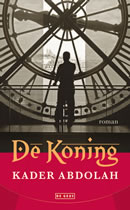 Kader Abdolah The King
Kader Abdolah The King
(De koning, 2011)
Kader Abdolah’s book The King places him in a tradition that goes back centuries, the tradition of great... -
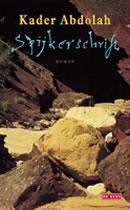 Kader Abdolah Cuneiform
Kader Abdolah Cuneiform
(Spijkerschrift, 2000)
In 1988, Kader Abdolah fled from Iran and settled in the Netherlands. He had already written two novels and here he... -
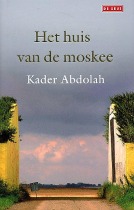 Kader Abdolah The House of the Mosque
Kader Abdolah The House of the Mosque
(Het huis van de moskee, 2005)
For eight hundred years the house next to the mosque in the Iranian city of Senejan has been in the hands of one... -
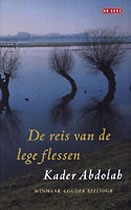 Kader Abdolah The Journey of the Empty Bottles
Kader Abdolah The Journey of the Empty Bottles
(De reis van de lege flessen, 1997)
Abdolah is an unusual and unique voice in Dutch literature because he uses his theme to hold up a mirror to his new... -
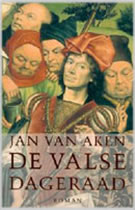 Jan van Aken The False Dawn
Jan van Aken The False Dawn
(De valse dageraad, 2001)
‘I’m older than I ever wanted to become’ is how Hroswith van Wikala, globetrotter and scholar, begins his tale in the... -
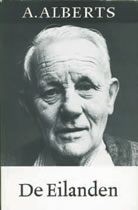 Albert Alberts The Islands
Albert Alberts The Islands
(De eilanden, 1952)
Albert Alberts was over forty when his stories, later collected as The Islands, were first published. His... -
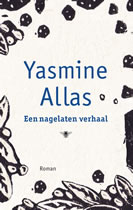 Yasmine Allas A Handed-Down History
Yasmine Allas A Handed-Down History
(Een nagelaten verhaal, 2010)
At a young age, the writer Yasmine Allas fled Somalia after her father was murdered during the civil war. For years she... -
 Robert Anker Kind of England
Robert Anker Kind of England
(Een soort Engeland, 2001)
Over the last few years, the poet, Robert Anker, has turned into a true novelist with his short stories and novellas.... -
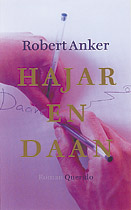 Robert Anker Hajar and Daan
Robert Anker Hajar and Daan
(Hajar en Daan, 2004)
Hajar and Daan, a contemporary version of West Side Story written by Robert Anker, opens with ‘The first time... -
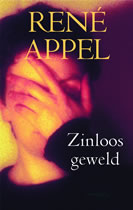 René Appel Random Attack
René Appel Random Attack
(Zinloos geweld, 2001)
With his expanding series of psychological thrillers René Appel ranks among the best mystery writers in the... -
Frank Martinus Arion Double Play
(Dubbelspel, 1973)
In his books Frank Martinus Arion tries to provide readers with ‘critical knowledge about reality’, while at the same... -
Frank Martinus Arion The Last Freedom
(De laatste vrijheid, 1995)
Arion’s 1973 first novel, Dubbelspel (Double Play), was a great success in the Netherlands and is still seen... -
Russell Artus Clock Without Hands
(Zonder wijzers, 1995)
When Nigel Qureshi’s Indian father was home between business trips ‘almost everything seemed detached from time’. This... -
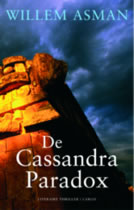 Willem Asman The Cassandra Paradox
Willem Asman The Cassandra Paradox
(De Cassandra Paradox, 2006)
Willem Asman has emerged as The Netherlands’ Stephen King, an author whom Asman greatly admires and whom he has adopted... -
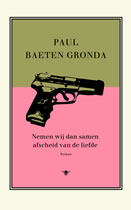 Paul Baeten Gronda Let Us Together Say Farewell to Love
Paul Baeten Gronda Let Us Together Say Farewell to Love
(Nemen wij dan samen afscheid van de liefde, 2008)
The title of Paul Baeten Gronda’s debut refers to the opening sentence of the celebrant at the funeral of the... -
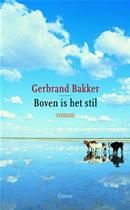 Gerbrand Bakker The Twin
Gerbrand Bakker The Twin
(Boven is het stil, 2006)
Gerbrand Bakker’s Boven is het stil (The Twin) is ostensibly a book about the countryside, as seen through the... -
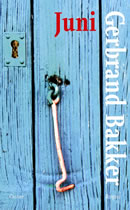 Gerbrand Bakker June
Gerbrand Bakker June
(Juni, 2009)
Juni (‘June’), the second novel by Gerbrand Bakker, begins astonishingly enough from the perspective of the... -
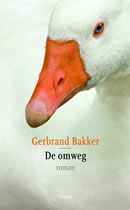 Gerbrand Bakker The Detour
Gerbrand Bakker The Detour
(De omweg, 2010)
A Dutch woman, who is a university English lecturer, rents a farm in remote, rural Wales, where she is carrying out... -
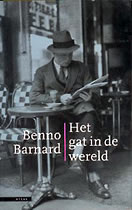 Benno Barnard The Hole In The World
Benno Barnard The Hole In The World
(Het gat in de wereld, 1993)
Barnard, who grew up as the son of a clergyman poet, has been on the move all his adult life, as if the weight of... -
Benno Barnard Belgium: Europe’s Bastard Son
(Door God bij Europa verwekt, 1997)
This book is a portrait of Belgium based on a number of journeys Barnard made in recent years, as well as a... -
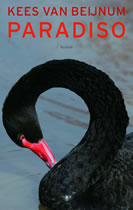 Kees van Beijnum Paradiso
Kees van Beijnum Paradiso
(Paradiso, 2008)
From the very first pages of his new novel, Kees van Beijnum puts the reader on edge. After six months, scientific... -
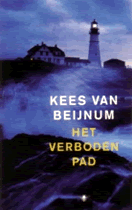 Kees van Beijnum The Forbidden Path
Kees van Beijnum The Forbidden Path
(Het verboden pad, 2004)
This is the story of Philip Soek, social worker, whose first job is in a home for problem children where discipline is... -
 Kees van Beijnum The Archives
Kees van Beijnum The Archives
(De ordening, 1998)
Where does innocence end and complicity begin? In De ordening the author is concerned with the tension between... -
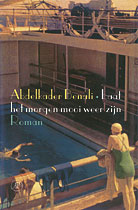 Abdelkader Benali Let Tomorrow Be Fine
Abdelkader Benali Let Tomorrow Be Fine
(Laat het morgen mooi weer zijn, 2005)
The third novel by Abdelkader Benali, Let Tomorrow Be Fine, is about Malik Ben, sent by his father on a cruise... -
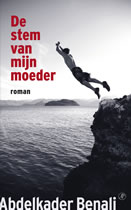 Abdelkader Benali My Mother’s Voice
Abdelkader Benali My Mother’s Voice
(De stem van mijn moeder, 2009)
In De stem van mijn moeder (My Mother’s Voice) Abdelkader Benali returns to his roots and his discovery of... -
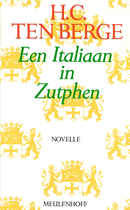 H.C. ten Berge An Italian in Zutphen
H.C. ten Berge An Italian in Zutphen
(Een Italiaan in Zutphen, 1990)
Edgar Moortgat from Het geheim van een opgewekt humeur returns in the novella Een Italiaan in... -
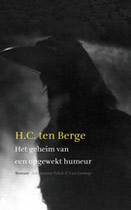 H.C. ten Berge The Secret of Having a Cheerful Disposition
H.C. ten Berge The Secret of Having a Cheerful Disposition
(Het geheim van een opgewekt humeur, 1986)
H.C. ten Berge is known as a ‘difficult’ author. However, since the publication in 1986 of his novel Het geheim van... -
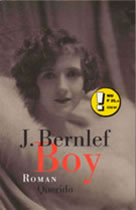 J. Bernlef Boy
J. Bernlef Boy
(Boy, 2000)
In the space of forty years, J. Bernlef has built up an impressive oeuvre. His final breakthrough came with the novel... -
 J. Bernlef Outside It’s Monday
J. Bernlef Outside It’s Monday
(Buiten is het maandag, 2003)
In his new novel Bernlef explores the subterranean labyrinths of memory, examining what endures and what disappears.... -
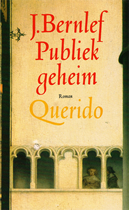 J. Bernlef Public Secret
J. Bernlef Public Secret
(Publiek geheim, 1987)
J. Bernlef is above all an acute observer, and perception is central to his novels. In Out of Mind, his... -
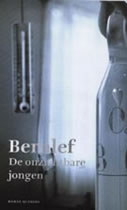 J. Bernlef The Invisible Boy
J. Bernlef The Invisible Boy
(De onzichtbare jongen, 2005)
Bernlef’s eleventh novel presents several familiar themes, such as the workings of memory and the curious role of... -
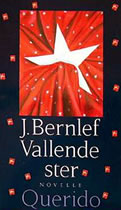 J. Bernlef Falling Star
J. Bernlef Falling Star
(Vallende ster, 1989)
In Vallende ster Bernlef takes the process of disintegration he described in Hersenschimmen (Out Of... -
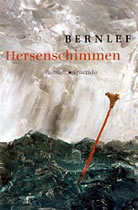 J. Bernlef Out Of Mind
J. Bernlef Out Of Mind
(Hersenschimmen, 1984)
In the novel Hersenschimmen, Bernlef has depicted reality through the eyes of a man who is suffering from... -
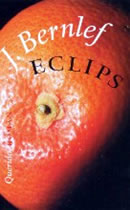 J. Bernlef Eclipse
J. Bernlef Eclipse
(Eclips, 1993)
Eclipse is a fascinating examination of the nature of perception by one of the Netherlands’ foremost writers. If... -
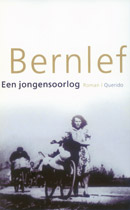 J. Bernlef A Boy’s War
J. Bernlef A Boy’s War
(Een jongensoorlog, 2005)
A Boy’s War has a special place in Bernlef’s substantial work. Previously published as... -
 J.M.A. Biesheuvel Sea Tales
J.M.A. Biesheuvel Sea Tales
(Zeeverhalen, 2007)
‘Not many readers may have noticed that deep down I’m a writer of sea stories,’ J.M.A. Bielsheuvel wrote in the preface... -
Marion Bloem The Cockatoo’s Lie
(De leugen van de kaketoe, 1993)
If it seemed initially as if Marion Bloem had used up all her material in her autobiographical first novel Geen... -
 Gie Bogaert Sunny Spells
Gie Bogaert Sunny Spells
(Opklaringen, 2007)
Opklaringen (Sunny Spells) is Gie Bogaert’s best novel yet. The protagonist, Rob, a compiler of hotel guide-books has... -
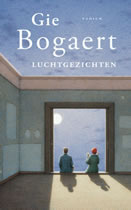 Gie Bogaert Cloud Faces
Gie Bogaert Cloud Faces
(Luchtgezichten, 2010)
Gie Bogaert’s new novel Luchtgezichten (Cloud Faces) is the third of three books which work together as a... -
Oscar van den Boogaard Julia’s Glorious Domain
(De heerlijkheid van Julia, 1996)
‘You have only one life in which to fulfil your every desire,’ says the main character in the novel De heerlijkheid van... -
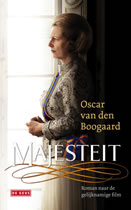 Oscar van den Boogaard Majesty
Oscar van den Boogaard Majesty
(Majesteit, 2010)
In Majesty Van den Boogaard sketches an exceedingly convincing and insightful portrait of Queen Beatrix as a... -
Louis Paul Boon Chapel Road
(De kapellekensbaan, 1953)
Louis Paul Boon (1912-1979) started life as a house painter but went on to become the author of a large and rich oeuvre... -
Louis Paul Boon Minuet
(Menuet, 1955)
In Minuet , a man works eight hours a day in the refrigerated basement of a factory. There he adjusts the... -
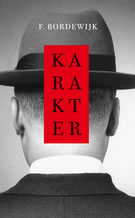 F. Bordewijk Character
F. Bordewijk Character
(Karakter, 1938)
Those who met Ferdinand Bordewijk described him as an impeccable, nondescript lawyer. Even the few acquaintances whom... -
Hafid Bouazza Abdulah’s Feet
(De voeten van Abdullah, 1996)
Hafid Bouazza is a self-assured writer with an exuberant style. His tendency to decorate the world with words and his... -
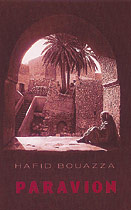 Hafid Bouazza Paravion
Hafid Bouazza Paravion
(Paravion, 2003)
Hafid Bouazza’s Paravion is like an Arab fairy tale in its composition, poetic and exotic, but its theme is... -
 Khalid Boudou The President
Khalid Boudou The President
(De President, 2005)
Just like Jerzy Kosinski’s Being There (1970), De President (‘The President’) tells the story of a... -
Désanne van Brederode People With a Hobby
(Mensen met een hobby, 2001)
In 1994 Désanne van Brederode made a sensational debut with the novel, Ave verum Corpus/Gegroet waarlijk... -
Stefan Brijs Arend
(Arend, 2000)
Death plays a key role in the work of Stefan Brijs. His first novel described the world of a solitary man whose two... -
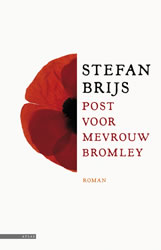 Stefan Brijs Post for Mrs. Bromley
Stefan Brijs Post for Mrs. Bromley
(Post voor mevrouw Bromley, 2011)
The first part of Stefan Brijs’ new novel, Post voor mevrouw Bromley (Post for Mrs. Bromley), is set in North... -
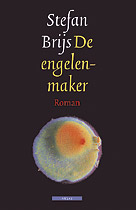 Stefan Brijs Angelmaker
Stefan Brijs Angelmaker
(De engelenmaker, 2005)
The main character in Stefan Brijs’ earlier novel Arend (2000) is a boy, fat, depressed and lonely, rejected... -
 Walter van den Broeck A Sensitive Boy
Walter van den Broeck A Sensitive Boy
(Een lichtgevoelige jongen, 2001)
In Een lichtgevoelige jongen (A Sensitive Boy) Walter van den Broeck once more returns to the Olen of his... -
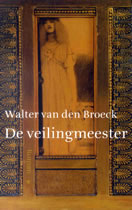 Walter van den Broeck The Auctioneer
Walter van den Broeck The Auctioneer
(De veilingmeester, 2007)
One striking factor of Walter van den Broeck is that he often appears as a character in his own novels. In his latest,... -
Walter van den Broeck Lost in the Mail
(Verdwaalde post, 1998)
It is not inconceivable that readers of Walter van den Broeck’s Verdwaalde post will find themselves carefully... -
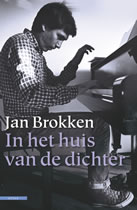 Jan Brokken In the House of the Poet
Jan Brokken In the House of the Poet
(In het huis van de dichter, 2008)
Russian concert pianist Youri Egorov (1954-88) was a cult hero. Jan Brokken got to know Egorov in the 1970s when he... -
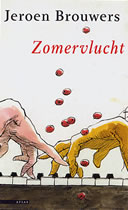 Jeroen Brouwers Summer Flight
Jeroen Brouwers Summer Flight
(Zomervlucht, 1990)
In Zomervlucht the fifty year old musician, Reinier Saltsman, accepts a colleague’s invitation to attend a... -
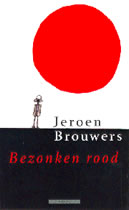 Jeroen Brouwers Sunken Red
Jeroen Brouwers Sunken Red
(Bezonken rood, 1981)
An adult male examines his relationship with his mother shortly after she has died in an old people’s home. He has had... -
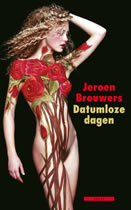 Jeroen Brouwers Numberless Days
Jeroen Brouwers Numberless Days
(Datumloze dagen, 2007)
Datumloze dagen (Numberless Days), Jeroen Brouwers’ latest novel, incorporates a thunderous symphony of death.... -
Marja Brouwers Light Chaser
(De Lichtjager, 1990)
‘I am always very suspicious of intellectuals’, Marja Brouwers once said in an interview and this attitude is amply... -
Marja Brouwers Havinck
(Havinck, 1984)
Havinck describes fifteen days in the life of an Amsterdam lawyer named Robert Havinck. He has just cremated... -
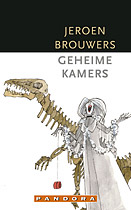 Jeroen Brouwers Secret Rooms
Jeroen Brouwers Secret Rooms
(Geheime kamers, 2000)
During the 1990s, Jeroen Brouwers published no new works of fiction. In his masterpiece, the voluminous De... -
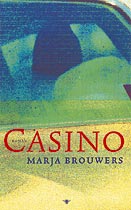 Marja Brouwers Casino
Marja Brouwers Casino
(Casino, 2004)
‘The great novel of the nineties that no Dutch writer has yet dared to attempt,’ enthused one reviewer of... -
Carry van Bruggen Eva
(Eva, 1927)
Eva is a sensitive self-portrait written as a stream of consciousness. When it appeared, the heartbeat of Van... -
Herman Brusselmans Autobiography of Someone Else
(Autobiografie van iemand anders, 1996)
Each year the winner of the Dutch Libris Prize is announced during a chic dinner in an imposing hotel with live TV... -
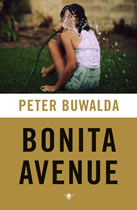 Peter Buwalda Bonita Avenue
Peter Buwalda Bonita Avenue
(Bonita Avenue, 2010)
In Bonita Avenue Peter Buwalda tells the story of the downfall of a brilliant professor and politician, who... -
Remco Campert A Love in Paris
(Een liefde in Parijs, 2004)
In A Love in Paris, poet and writer Richard Sanders returns to the city of light after several decades,... -
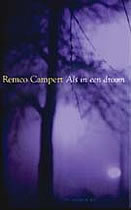 Remco Campert As if in a Dream
Remco Campert As if in a Dream
(Als in een droom, 2000)
Throughout his career, Remco Campert has demonstrated an unprecedented versatility, which has always earned him the... -
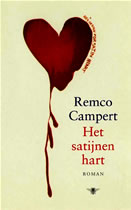 Remco Campert The Satin Heart
Remco Campert The Satin Heart
(Het satijnen hart, 2006)
Remco Campert’s apparent mildness and light ironic touch towards affairs of the heart have been altering gradually with... -
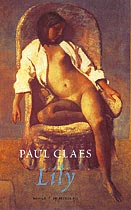 Paul Claes Lily
Paul Claes Lily
(Lily, 2003)
Lily is stylistically different from Paul Claes’s better known historical novels. The narrative is imbued with... -
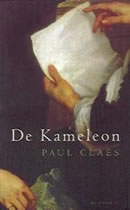 Paul Claes The Chameleon
Paul Claes The Chameleon
(De Kameleon, 2001)
In his fourth novel, De Kameleon (The Chameleon) Paul Claes leads the reader through a lively yarn set on the... -
Paul Claes The Phoenix
(De phoenix, 1998)
De phoenix by Paul Claes is a historical detective story in the tradition of Umberto Eco’s The Name of the... -
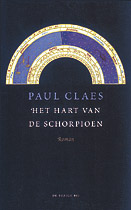 Paul Claes The Heart of the Scorpion
Paul Claes The Heart of the Scorpion
(Het hart van de schorpioen, 2002)
In Het hart van de schorpioen, Claes has written an unusual autobiography, in which he largely satisfies ones... -
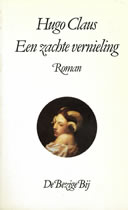 Hugo Claus Mild destruction
Hugo Claus Mild destruction
(Een zachte vernieling, 1988)
As in so much of his writing Hugo Claus incorporated autobiographical details in Een zachte vernieling (Mild... -
Hugo Claus Unfinished History
(Onvoltooid verleden, 1998)
Hugo Claus is not only the most famous and best read of Flemish authors, he is also the most prophetic. Shortly after... -
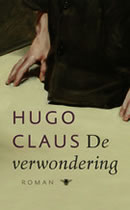 Hugo Claus Wonder
Hugo Claus Wonder
(De verwondering, 1962)
Victor-Denijs De Rijckel, a self-conscious and sexually troubled language teacher, is asked by the headmaster to... -
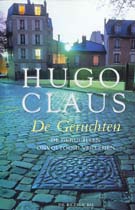 Hugo Claus The Rumours
Hugo Claus The Rumours
(De geruchten, 1996)
‘The road to civilisation has not been all that long,’ said Hugo Claus on the publication of his new novel, ‘and... -
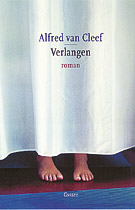 Alfred van Cleef Longing
Alfred van Cleef Longing
(Verlangen, 2002)
Longing, Alfred van Cleef’s first novel, tells the story of investigative journalist Albert Ossedrijver and... -
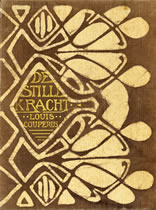 Louis Couperus The Hidden Force
Louis Couperus The Hidden Force
(De stille kracht, 1900)
In The Hidden Force the decline and fall of the Dutch resident Van Oudyck is caused by his inability to see... -
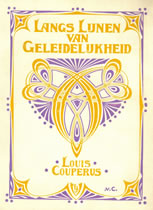 Louis Couperus Inevitable
Louis Couperus Inevitable
(Langs lijnen van geleidelijkheid, 1900)
Inevitable has a special place in the dazzling, vibrant oeuvre of Louis Couperus. He called it his ‘guesthouse... -
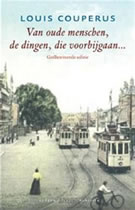 Louis Couperus Old People and the Things that Pass
Louis Couperus Old People and the Things that Pass
(Van oude menschen, de dingen, die voorbijgaan, 1906)
In this much-read family saga, one of the classics of Dutch literature, Couperus creates a highly variegated... -
Geertrui Daem Madly in Love
(Zotverliefd, 1997)
Geertrui Daem comes from Alost and has often been compared to her home town’s most famous literary son, the great... -
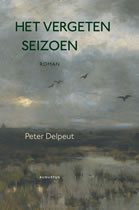 Peter Delpeut The Forgotten Season
Peter Delpeut The Forgotten Season
(Het vergeten seizoen, 2007)
This first novel by much-praised director and filmmaker Peter Delpeut is set in the mid-nineteenth century. Every week,... -
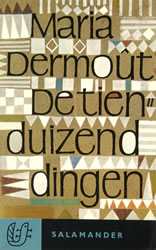 Maria Dermoût The Ten Thousand Things
Maria Dermoût The Ten Thousand Things
(De tienduizend dingen, 1955)
In the fifties Maria Dermoût’s novels were well known. Her bestseller The Ten Thousand Things jostled... -
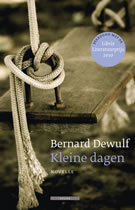 Bernard Dewulf Small Days
Bernard Dewulf Small Days
(Kleine dagen, 2009)
Bernard Dewulf’s Kleine dagen (Small Days) features a selection of columns published on alternate days on the... -
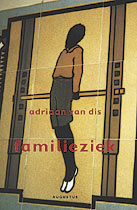 Adriaan van Dis Family Fray
Adriaan van Dis Family Fray
(Familieziek, 2002)
Adriaan van Dis’s Indonesian family background has played a major role in many of his novels, including Indische... -
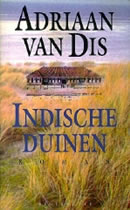 Adriaan van Dis My Father’s War
Adriaan van Dis My Father’s War
(Indische duinen, 1994)
The autobiographical nature of Adriaan van Dis’s work can be partly deduced from the fact that the surname of the main... -
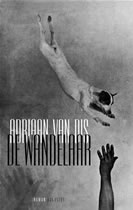 Adriaan van Dis The Walker
Adriaan van Dis The Walker
(De wandelaar, 2007)
Mr Mulder seems to all appearances to be a upstanding gentleman, gliding through life, impeccably dressed, aloof to the... -
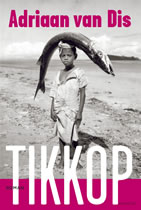 Adriaan van Dis Tik Kop
Adriaan van Dis Tik Kop
(Tikkop, 2010)
After a forty year absence, Mr Mulder – a character from Van Dis’ previous novel, an introvert full of good intentions,... -
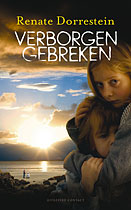 Renate Dorrestein Fatal Flaws
Renate Dorrestein Fatal Flaws
(Verborgen gebreken, 1996)
The belligerent motto of this novel is taken from Virginia Woolf: ‘This is an insignificant book, because it’s about... -
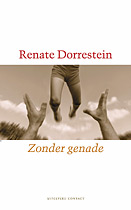 Renate Dorrestein No Mercy
Renate Dorrestein No Mercy
(Zonder genade, 2001)
On tour in America to promote the successful translation of her novel, Een hart van steen (A Heart of Stone),... -
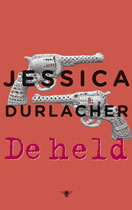 Jessica Durlacher The Hero
Jessica Durlacher The Hero
(De held, 2010)
The central character in Jessica Durlacher’s novel The Hero is Sara Silverstein, married with two children and... -
Frederik van Eeden The Deeps of Deliverance
(Van de koele meren des doods, 1900)
Although Frederik van Eeden wrote poetry, plays, scientific studies and essays on literature and painting, he is... -
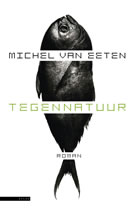 Michel van Eeten Anti-Nature
Michel van Eeten Anti-Nature
(Tegennatuur, 2008)
Debut novelist Michel van Eeten has a tremendous talent for looking at things from the reverse side. At times this... -
Willem Elsschot Cheese
(Kaas, 1933)
Ida de Ridder published her memoirs of her father Alfons de Ridder, the man who gained fame as a writer under the... -
 Gerard van Emmerik The Chicken Boy
Gerard van Emmerik The Chicken Boy
(De kippenjongen, 2011)
Noor, an intelligent, artistic young woman, decides to marry Lucas, a solitary chicken farmer twice her age with the... -
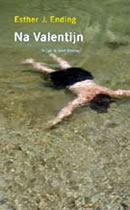 Esther J. Ending After Valentine
Esther J. Ending After Valentine
(Na Valentijn, 2004)
Esther J. Ending’s debut Na Valentijn (After Valentine) is characterised by her convincing rendering of... -
 Anna Enquist Counterpoint
Anna Enquist Counterpoint
(Contrapunt, 2008)
A woman practises Bach’s Goldberg Variations. It is clear from the start that she is doing so out of a need... -
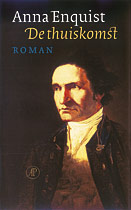 Anna Enquist The Homecoming
Anna Enquist The Homecoming
(De thuiskomst, 2005)
With The Homecoming, a historical novel, Anna Enquist has changed course. Elizabeth Batts, the main character,... -
 Anna Enquist The Secret
Anna Enquist The Secret
(Het geheim, 1997)
Music as a restful haven – this is the theme we encounter in both Anna Enquist’s poetry and in her novels. Her first... -
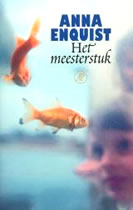 Anna Enquist The Masterpiece
Anna Enquist The Masterpiece
(Het meesterstuk, 1994)
Anna Enquist has an innate talent for telling stories; they flow as naturally and spontaneously as a mountain stream.... -
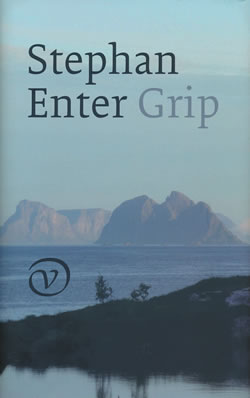 Stephan Enter Grip
Stephan Enter Grip
(Grip, 2011)
*Grip* is a classic psychological novel about three men in love with the same woman, Lotte, which ingeniously draws the... -
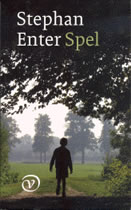 Stephan Enter Game
Stephan Enter Game
(Spel, 2007)
Stephan Enter is a writer who takes time to describe the atmosphere, milieu and nature of his characters sensitively... -
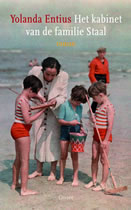 Yolanda Entius The Cabinet of the Staal Family
Yolanda Entius The Cabinet of the Staal Family
(Het kabinet van de familie Staal, 2011)
“Happy families are all alike; every unhappy family is unhappy in its own way.” This famous quote from Anna... -
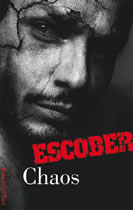 Escober Chaos
Escober Chaos
(Chaos, 2006)
‘I departed four days later, on the backseat of a police car. The door-to-door salesman I had taken to be a Serbian... -
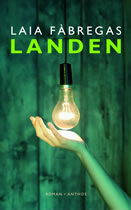 Laia Fàbregas Landing
Laia Fàbregas Landing
(Landen, 2010)
‘Biztresa’ means nothing, not in any language. It is just a collection of letters, but anyone who wants can find... -
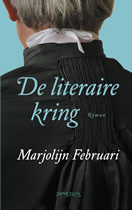 Marjolijn Februari The Literary Circle
Marjolijn Februari The Literary Circle
(De literaire kring, 2007)
Thirty-year-old Theresa Pellikaan is typical of the wealthy middle classes - with her respectable background,... -
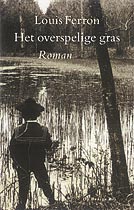 Louis Ferron The Adulterous Grass
Louis Ferron The Adulterous Grass
(Het overspelige gras, 2002)
In The Adulterous Grass Louis Ferron traces the tarnished history of the Van Lookerens, a family of ‘textile... -
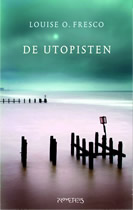 Louise O. Fresco The Utopians
Louise O. Fresco The Utopians
(De utopisten, 2007)
How can you be principled when in power? This novel of ideas is about corruption. Michiel van Straten, an environmental... -
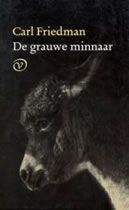 Carl Friedman The Grey Lover
Carl Friedman The Grey Lover
(De grauwe minnaar, 1996)
Carl Friedman hates always being expected to say something about the Jewish experience in interviews. ‘It’s scarcely a... -
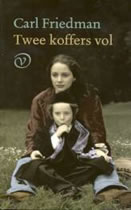 Carl Friedman The Shovel and the Loom
Carl Friedman The Shovel and the Loom
(Twee koffers vol, 1993)
With remarkable economy and the acuity of a Salinger, Carl Friedman creates a fictional world so insistently present... -
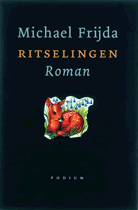 Michael Frijda Rustling
Michael Frijda Rustling
(Ritselingen, 2005)
Frijda’s Ritselingen (Rustling) is a mysterious novel about identity and origin. The complex family history of... -
Jef Geeraerts The PG
(De PG, 1998)
De PG is set in 1999, although it was published in 1998. The book was inspired by the scandals in which the... -
Jef Geeraerts Gangrene - Black Venus
(Gangreen - Black Venus, 1968)
The first part of the Gangrene cycle, Gangrene - Black Venus, is set in the Belgian Congo at the end of the... -
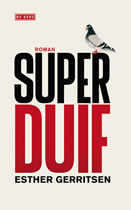 Esther Gerritsen Superdove
Esther Gerritsen Superdove
(Superduif, 2010)
‘The day I met Ine was the day I began to rise in the air.’ So opens Suiperduif (Superdove), Esther... -
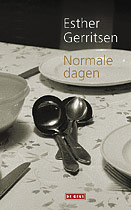 Esther Gerritsen Ordinary Days
Esther Gerritsen Ordinary Days
(Normale dagen, 2005)
In Normale dagen (Ordinary Days), Esther Gerritsen’s second novel, we follow the playwright Lucie who, after a... -
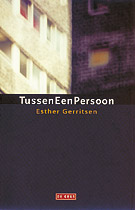 Esther Gerritsen Between One Person
Esther Gerritsen Between One Person
(TussenEenPersoon, 2002)
TussenEenPersoon, Esther Gerritsen’s first novel, is the oppressive monologue delivered by a woman to her... -
Maurice Gilliams Elias or the Struggle with the Nightingales
(Elias of het gevecht met de nachtegalen, 1936)
When Maurice Gilliams won the Grand Prize for Letters in 1980, many a newspaper journalist was at a loss: as far as the... -
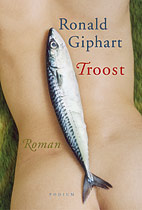 Ronald Giphart Consolation
Ronald Giphart Consolation
(Troost, 2005)
Ronald Giphart has been one of the most successful Dutch authors from the start. His debut Ik ook van jou (‘I... -
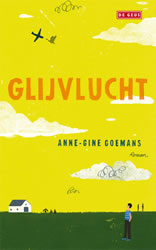 Anne-Gine Goemans Gliding Flight
Anne-Gine Goemans Gliding Flight
(Glijvlucht, 2011)
Anne-Gine Goemans describes the isolated world of fourteen-year-old Gieles, who lives in an almost deserted spot right... -
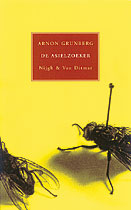 Arnon Grunberg The Asylum Seeker
Arnon Grunberg The Asylum Seeker
(De asielzoeker, 2003)
Arnun Grunberg’s mad literary universe has become increasingly grim over the last few years. Whereas in the early... -
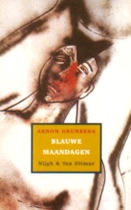 Arnon Grunberg Blue Mondays
Arnon Grunberg Blue Mondays
(Blauwe maandagen, 1994)
Absurd, unashamed and amusing’ well describes the life story of the character Arnon Grunberg, drawn up by the author of... -
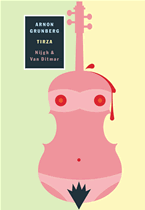 Arnon Grunberg Tirza
Arnon Grunberg Tirza
(Tirza, 2006)
It is nothing short of remarkable how Arnon Grunberg continually reinvents himself. Each new book is strikingly... -
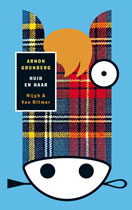 Arnon Grunberg Every Scrap
Arnon Grunberg Every Scrap
(Huid en haar, 2010)
Economist Roland Oberstein is one of the forty most renowned authorities on Adam Smith in the world. He is also the... -
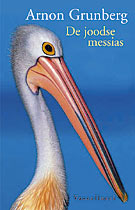 Arnon Grunberg The Jewish Messiah
Arnon Grunberg The Jewish Messiah
(De joodse messias, 2004)
‘Because his grandfather had served the SS with genuine enthusiasm and an abiding belief in progress, the grandson also... -
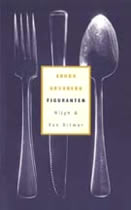 Arnon Grunberg Silent Extras
Arnon Grunberg Silent Extras
(Figuranten, 1997)
Whereas Grunberg described the world of paid love and escort services in his first novel, Blauwe maandagen,... -
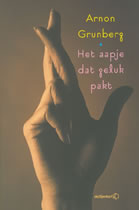 Arnon Grunberg Monkey Grabbing Hold of Happiness
Arnon Grunberg Monkey Grabbing Hold of Happiness
(Het aapje dat geluk pakt, 2004)
The protagonist of the short novel Monkey Grabbing Hold of Happiness, Jean-Baptist Warnke, number two at the... -
Luuk Gruwez Land of Cheeks
(Het land van de wangen, 1998)
The Flemish poet and prose-writer Luuk Gruwez is a writer who sets great store by his style and composition. Het... -
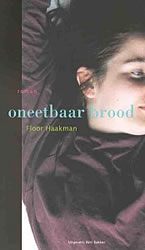 Floor Haakman Inedible Bread
Floor Haakman Inedible Bread
(Oneetbaar brood, 2001)
Oneetbaar brood (Inedible Bread) is Floor Haakman’s surprising debut, praised quite rightly by the critics.... -
Josse de Haan The Frog Years
(Kikkerjaren, 2001)
Josse de Haan is from Friesland, a northern Dutch province with its own distinct character and language, Frisian. His... -
Robert Haasnoot Sea of Insanity
(Waanzee, 2000)
‘Arend pushes the arms and legs apart with his foot and starts to hack the limbs from the torso. He manages to sever... -
 Hella S. Haasse Messages From The Blue House
Hella S. Haasse Messages From The Blue House
(Berichten van het blauwe huis, 1986)
After having spent half a century abroad, sisters Felicia and Nina return to the house of their youth. It is only for... -
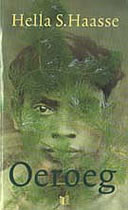 Hella S. Haasse Oeroeg
Hella S. Haasse Oeroeg
(Oeroeg, 1948)
For many Dutch people, Oeroeg was an eyeopening introduction to race relations in the colonial Dutch East... -
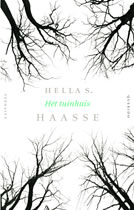 Hella S. Haasse The Garden House
Hella S. Haasse The Garden House
(Het tuinhuis, 2006)
Hella S. Haasse is renowned for her historical novels. They are intelligent, exciting, and well-documented; they take... -
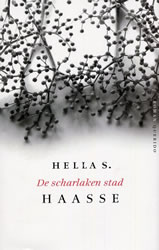 Hella S. Haasse The Scarlet City
Hella S. Haasse The Scarlet City
(De scharlaken stad, 1952)
Much of Haasse’s work consists of historical novels, a genre eminently suited to her erudition and her subtle,... -
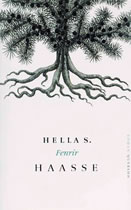 Hella S. Haasse Fenrir: A Long Weekend in the Ardennes
Hella S. Haasse Fenrir: A Long Weekend in the Ardennes
(Fenrir: Een lang weekend in de Ardennen, 2000)
Hella Haasse’s popularity with a wide range of readers may have contributed to her not being included in the list of... -
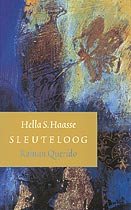 Hella S. Haasse Eye of the Key
Hella S. Haasse Eye of the Key
(Sleuteloog, 2002)
Despite her advanced years, Hella S. Haasse always succeeds magnificently in penning novels that add something new and... -
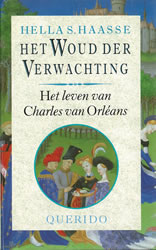 Hella S. Haasse In a Dark Wood Wandering
Hella S. Haasse In a Dark Wood Wandering
(Het woud der verwachting, 1949)
In this biography of the 15th-century poet-statesman Charles d’Orléans Haasse blends historical facts with... -
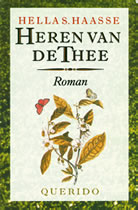 Hella S. Haasse The Tea Merchants
Hella S. Haasse The Tea Merchants
(Heren van de thee, 1992)
Hella Haasse is the ‘grande dame’ of Dutch letters. She made her name with lengthy, excellently documented, fast paced... -
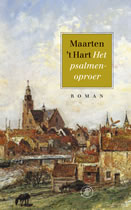 Maarten ’t Hart Psalms and Riots
Maarten ’t Hart Psalms and Riots
(Het psalmenoproer, 2006)
For years Maarten ’t Hart has been planning to write a historical novel (what he calls a documentary novel) about his... -
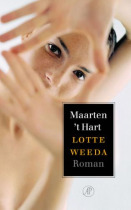 Maarten ’t Hart Lotte Weeda
Maarten ’t Hart Lotte Weeda
(Lotte Weeda, 2004)
‘Delusion is all that is given to us’ is the maxim Maarten ’t Hart gives Xenophanes in his new novel, and the villagers... -
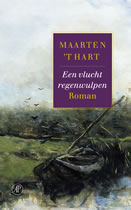 Maarten ’t Hart A Flight of Curlews
Maarten ’t Hart A Flight of Curlews
(Een vlucht regenwulpen, 1978)
The film of Maarten ’t Hart’s most famous novel starred Jeroen Krabbé as Maarten, the shy, awkward biology professor.... -
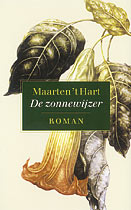 Maarten ’t Hart The Sundial
Maarten ’t Hart The Sundial
(De Zonnewijzer, 2002)
Maarten ’t Hart’s new novel The Sundial, is engrossing. It opens with the central character, Leonie Kuyper,... -
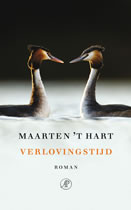 Maarten ’t Hart Betrothal
Maarten ’t Hart Betrothal
(Verlovingstijd, 2009)
Maarten ’t Hart, one of the best loved and most popular authors in the Low Countries, wrote Verlovingstijd... -
Hans den Hartog Jager Becoming God
(Zelf God worden, 2003)
With Becoming God, Hans den Hartog Jager has written a first novel that reads like an exciting detective... -
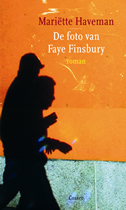 Mariëtte Haveman Faye Finsbury’s Photo
Mariëtte Haveman Faye Finsbury’s Photo
(De foto van Faye Finsbury, 2008)
Faye Finsbury’s Photo is a modern Bildungsroman. The central character Maria van Enschede turns from... -
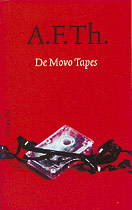 A.F.Th. van der Heijden The Movo Tapes
A.F.Th. van der Heijden The Movo Tapes
(De Movo Tapes, 2003)
After seven years of silence A.F.Th. van der Heijden has published De Movo Tapes, the ‘zeroth’ volume of the... -
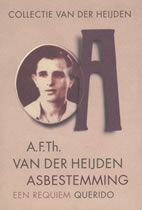 A.F.Th. van der Heijden Ash Destination
A.F.Th. van der Heijden Ash Destination
(Asbestemming, 1994)
Reality and fiction are always closely bound up together in the work of A.F.Th. van der Heijden. Historical events –... -
A.F.Th. van der Heijden Under the Pavement the Morass
(Onder het plaveisel het moeras, 1996)
After the appearance of the first parts of his cycle of novels De tandeloze tijd (The Toothless Time), A.F.Th.... -
A.F.Th. van der Heijden Falling Parents / The Danger Triangle
(Vallende ouders / De gevarendriehoek, 1983 / 1985)
From the outset Albert Egberts is looking for a method to neutralise the crushing effect of the ravages of time. He... -
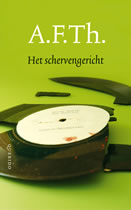 A.F.Th. van der Heijden Judgement by Shards
A.F.Th. van der Heijden Judgement by Shards
(Het schervengericht, 2007)
A.F.Th. van der Heijden’s thick new novel Het schervengericht (Judgement by Shards), with its familiar yet... -
A.F.Th. van der Heijden The Court of Mercy
(Het Hof van Barmhartigheid, 1996)
After the appearance of the first parts of his cycle of novels De tandeloze tijd (The Toothless Time), A.F.Th.... -
A.F.Th. van der Heijden The Battle of the Blue Bridge
(De slag om de Blauwbrug, 1983)
In this book, which is the overture to the cycle of novels De tandeloze tijd (The Toothless Time), the leading... -
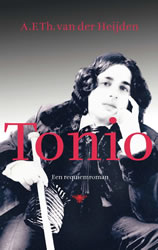 A.F.Th. van der Heijden Tonio
A.F.Th. van der Heijden Tonio
(Tonio, 2011)
A.F.Th. van der Heijden already had a number of ‘requiems’ to his name: for a childhood sweetheart, a cousin who died... -
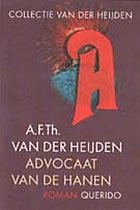 A.F.Th. van der Heijden Lawyer to the Punks
A.F.Th. van der Heijden Lawyer to the Punks
(Advocaat van de hanen, 1990)
A.F.Th van der Heijden’s books incorporate historical events and real locations. His main characters were born during... -
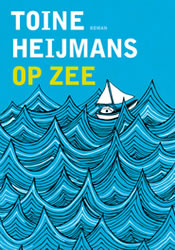 Toine Heijmans At Sea
Toine Heijmans At Sea
(Op zee, 2011)
A slate-grey sky full of clouds, the tension of a sailing trip with an uncertain outcome, and every parent’s fear of... -
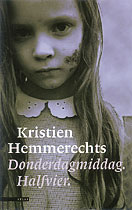 Kristien Hemmerechts Thursday Afternoon: Three Thirty.
Kristien Hemmerechts Thursday Afternoon: Three Thirty.
(Donderdagmidag. Halfvier., 2002)
Hemmerechts’ novels appear to emerge organically from her pen, never following a strict scheme but taking the reader on... -
Kristien Hemmerechts Language Without Me
(Taal zonder mij, 1998)
In Taal zonder mij Kristien Hemmerechts calls herself 'the inadequate ghostwriter’ of the autobiography of her... -
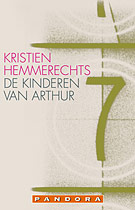 Kristien Hemmerechts Arthur’s Children
Kristien Hemmerechts Arthur’s Children
(De kinderen van Arthur, 2000)
Kristien Hemmerechts based De kinderen van Arthur on the English documentary 7Up, in which the... -
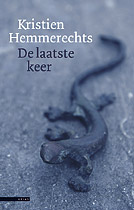 Kristien Hemmerechts The Last Time
Kristien Hemmerechts The Last Time
(De laatste keer, 2004)
In The Last Time the reader sees through the eyes of Yoko Debondt, who has survived a serious accident the... -
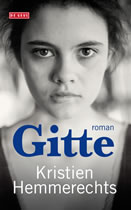 Kristien Hemmerechts Gitte
Kristien Hemmerechts Gitte
(Gitte, 2011)
The new novel Gitte by Kristien Hemmerechts is undoubtedly a further highpoint to her oeuvre. In a captivating... -
Kristien Hemmerechts Margot and the Angels
(Margot en de engelen, 1997)
What’s the use of parental good advice once the children have stopped listening? The advice says more about those who... -
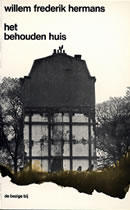 Willem Frederik Hermans The Safe House
Willem Frederik Hermans The Safe House
(Het behouden huis, 1951)
The Safe House is a novella of great literary value. Like the work of Jean-Paul Sartre, it shows the effects... -
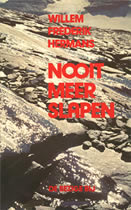 Willem Frederik Hermans Beyond Sleep
Willem Frederik Hermans Beyond Sleep
(Nooit meer slapen, 1966)
Beyond Sleep is the oppressive story, of young geologist Alfred Issendorf. Like all scientists, he dreams of... -
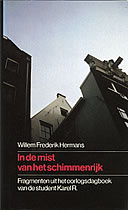 Willem Frederik Hermans In The Mist Of The Spirit Realm
Willem Frederik Hermans In The Mist Of The Spirit Realm
(In de mist van het schimmenrijk, 1993)
Willem Frederik Hermans generally makes no attempt to make a secret of his opinions. On the subject of the diary as a... -
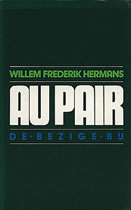 Willem Frederik Hermans Au Pair
Willem Frederik Hermans Au Pair
(Au Pair, 1989)
Pauline, a Dutch student, wishes to study in Paris and gets a job as an au pair. At the first family she works for, she... -
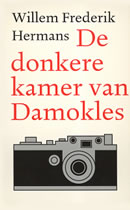 Willem Frederik Hermans The Darkroom of Damocles
Willem Frederik Hermans The Darkroom of Damocles
(De donkere kamer van Damocles, 1958)
Willem Frederik Hermans was an adolescent in Amsterdam during the Second World War, a period that made an indelible... -
 Joke J. Hermsen So It’s Love
Joke J. Hermsen So It’s Love
(De liefde dus, 2008)
In this ingenious epistolary-cum-historical novel, Hermsen shines a fascinating light on the life and work of Isabella... -
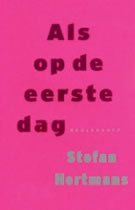 Stefan Hertmans Like The First Day
Stefan Hertmans Like The First Day
(Als op de eerste dag, 2001)
As in his first, successful novel, Terug naar Merelbeke (Back to Merelbeke) – in which a young boy imagines... -
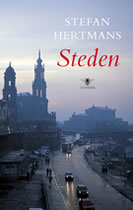 Stefan Hertmans Cities
Stefan Hertmans Cities
(Steden, 1998)
This new collection by Flemish writer and poet Stefan Hertmans is called Steden: simple but forceful. The... -
 Stefan Hertmans Hidden Fibre
Stefan Hertmans Hidden Fibre
(Het verborgen weefsel, 2008)
Het verborgen weefsel (Hidden Fibre) is Stefan Hertmans’ fourth novel, again unique in its combination of... -
Guido van Heulendonk Return to Killary Harbour
(Terug naar Killary Harbour, 2004)
A journalist retires to the village of his childhood to get away from the excesses and stress of city life. Thirty... -
F.B. Hotz Complete Works
(Het werk, 1997)
Over a period of twenty years, F.B. Hotz produced a wonderful body of work which occupies a prominent place in Dutch... -
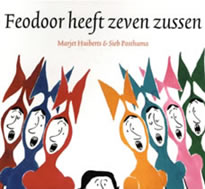 Marjet Huiberts Feodoor Has Seven Sisters
Marjet Huiberts Feodoor Has Seven Sisters
(Feodoor heeft zeven zussen, 2006)
Just imagine it happened to you: seven older sisters, all of them crazy about you. It may sound nice, but it isn’t. And... -
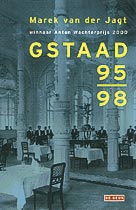 Marek van der Jagt Gstaad 95-98
Marek van der Jagt Gstaad 95-98
(Gstaad 95-98, 2002)
There was a great to-do surrounding the publication of De geschiedenis van mijn kaalheid (The Story of my... -
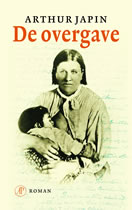 Arthur Japin Surrender
Arthur Japin Surrender
(De overgave, 2007)
In De overgave (Surrender), Arthur Japin tells the heartbreaking, horrific and cruel story of Sallie ‘Granny’... -
Arthur Japin The Fourth Wall
(De vierde wand, 1998)
The publication of De zwarte met het witte hart (The Two Hearts of Kwasi Boachi) in 1997 established Arthur... -
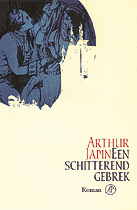 Arthur Japin In Lucia’s Eyes
Arthur Japin In Lucia’s Eyes
(Een schitterend gebrek, 2003)
Arthur Japin found his inspiration for In Lucia’s Eyes in an episode in the life of Giacomo Casanova,... -
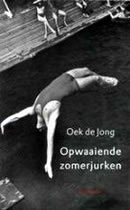 Oek de Jong Billowing Summer Frocks
Oek de Jong Billowing Summer Frocks
(Opwaaiende zomerjurken, 1979)
In the first part of Billowing Summer Frocks we are introduced to eight-year-old Edo Mesch during a languid... -
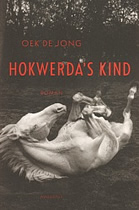 Oek de Jong Hokwerda’s Child
Oek de Jong Hokwerda’s Child
(Hokwerda’s kind, 2002)
In the eighties, Oek de Jong’s debut, Opwaaiende zomerjurken (Billowing Summer Frocks), became a genuine cult... -
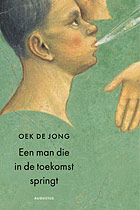 Oek de Jong A Man Leaping Into the Future
Oek de Jong A Man Leaping Into the Future
(Een man die in de toekomst springt, 1997)
It is difficult to define precisely what the term ‘essay’ means. Montaigne would have been amazed to see how newspaper... -
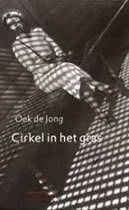 Oek de Jong Circle in the Grass
Oek de Jong Circle in the Grass
(Cirkel in het gras, 1985)
Oek de Jong’s prime preoccupation, the desire for a harmonious life – whether or not through art – is repeated in this... -
Atte Jongstra Vegetables
(Groente, 1991)
In his first book Jongstra drowns the unsuspecting reader in a confusion of fact and fiction, questionable footnotes,... -
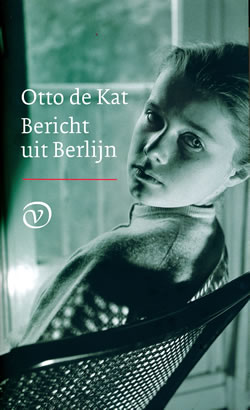 Otto de Kat News from Berlin
Otto de Kat News from Berlin
(Bericht uit Berlijn, 2012)
Bern, June 1941. Dutch diplomat Oscar Verschuur finds himself in neutral Switzerland. His family is spread across... -
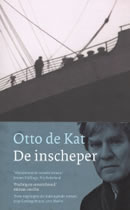 Otto de Kat Man on the move
Otto de Kat Man on the move
(De inscheper, 2004)
The story of Rob’s life is told in spare prose. Not for him a predictable existence in bourgeois Holland; he heads out... -
Frans Kellendonk Ruin
(Bouwval, 1977)
This collection of short stories became a great success and the young author was awarded the Anton Wachter prize. Far... -
Frans Kellendonk Mystical Body
(Mystiek lichaam, 1986)
The publication of Mystical Body caused a sensation in the Dutch literary establishment; a number of leading... -
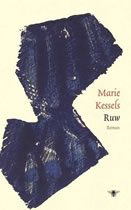 Marie Kessels Rough
Marie Kessels Rough
(Ruw, 2009)
Marie Kessels writes novels set inside the often fickle minds of her protagonists who are willing to go to any length... -
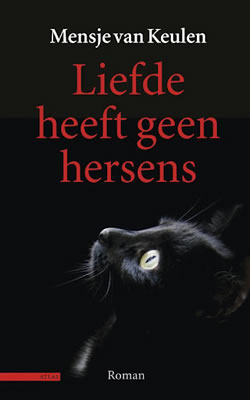 Mensje van Keulen Love has no Brains
Mensje van Keulen Love has no Brains
(Liefde heeft geen hersens, 2012)
We find ourselves in a seemingly ordinary situation of the sort Mensje van Keulen favours for her stories and novels.... -
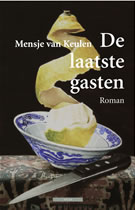 Mensje van Keulen The Last Guests
Mensje van Keulen The Last Guests
(De laatste gasten, 2007)
Mensje van Keulen manages to build an almost incessant tension into her writing. The reader has the constant feeling... -
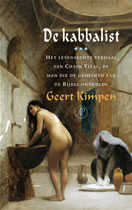 Geert Kimpen The Kabbalist
Geert Kimpen The Kabbalist
(De kabbalist, 2006)
Due to his interest in Judaism in general and in the Kabbalah in particular, Geert Kimpen came across the story of... -
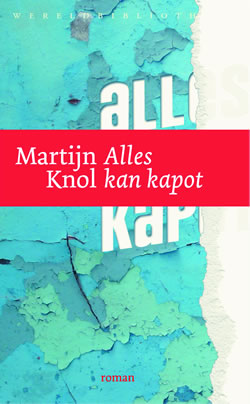 Martijn Knol Anything Can Break
Martijn Knol Anything Can Break
(Alles kan kapot, 2011)
*Alles kan kapot* (Anything Can Break) moves between Arnhem, Germany, Vienna, Lesbos and New York and spans three... -
 Herman Koch The Dinner
Herman Koch The Dinner
(Het Diner, 2009)
Four people. One dinner. An unavoidable decision. The blurb for Herman Koch’s new novel sounds like a film trailer and... -
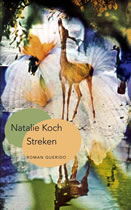 Natalie Koch Plays
Natalie Koch Plays
(Streken, 2007)
To reach the pinnacle in classical music demands passion and sacrifice – and driving ambition. This is the theme of... -
Paul Koeck The Blood Taster
(De bloedproever, 1999)
On a visit to the village where he was born, a television presenter is plunged into his past. He remembers his parents,... -
Geert van der Kolk The Smuggler of the Exuma’s
(De smokkelaar van de Exuma’s, 2002)
'The Mola mola is a solitary, pelagic fish that can grow to a length of three metres, with a weight of more than a... -
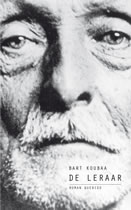 Bart Koubaa The Teacher
Bart Koubaa The Teacher
(De leraar, 2009)
‘Bart Koubaa’s new novel De leraar (The Teacher) is mainly narrated in the first person by a Dutch-language teacher,... -
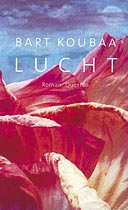 Bart Koubaa Air
Bart Koubaa Air
(Lucht, 2005)
Kudo Yamamoto, the main character of Bart Koubaa’s second novel Air, drags an eventful past with him. At... -
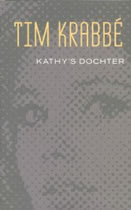 Tim Krabbé Kathy’s Daughter
Tim Krabbé Kathy’s Daughter
(Kathy’s dochter, 2001)
Tim Krabbé sure knows how to write a thrilling story. In novels like De grot (The Grotto, 1997), De... -
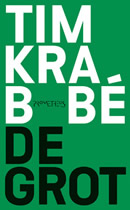 Tim Krabbé The Cave
Tim Krabbé The Cave
(De grot, 1997)
Tim Krabbé is the author of the both as a novel and a film internationally successful The Vanishing. It was... -
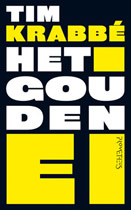 Tim Krabbé The Vanishing
Tim Krabbé The Vanishing
(Het gouden ei, 1984)
With his Nordic cousins Henning Mankell and Karin Fossum, both currently enjoying worldwide success, Tim Krabbé shares... -
Gerrit Krol Middleton’s Death
(Middletons dood, 1996)
The novel De ziekte van Middleton (Middleton’s Disease, 1969) by Gerrit Krol has a collage-like structure and... -
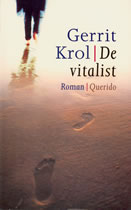 Gerrit Krol The Vitalist
Gerrit Krol The Vitalist
(De vitalist, 2000)
‘Quite right,’ was Gerrit Krol’s characteristically laconic response upon being awarded the most important literary... -
 Gerrit Krol Rondo Veneziano
Gerrit Krol Rondo Veneziano
(Rondo Veneziano, 2004)
Science and technology are the main ingredients of Rondo Veneziano, as in pretty much all Krol’s novels and... -
Eric de Kuyper Three Sisters in London
(Drie zusters in Londen, 1996)
During World War I, Eric de Kuyper’s grandfather’s position with the railways took him and his family to London. The De... -
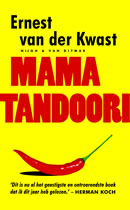 Ernest van der Kwast Mama Tandoori
Ernest van der Kwast Mama Tandoori
(Mama Tandoori, 2010)
In the autobiographical novel Mama Tandoori, Ernest van der Kwast paints a hilarious but moving portrait of... -
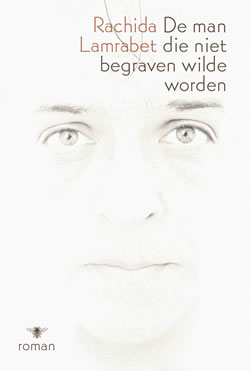 Rachida Lamrabet The Man Who Didn’t Want to be Buried
Rachida Lamrabet The Man Who Didn’t Want to be Buried
(De man die niet begraven wilde worden, 2011)
In *De man die niet begraven wilde worden* (The Man Who Didn’t Want to be Buried), Rachida Lamrabet once more... -
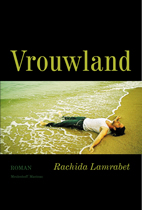 Rachida Lamrabet Woman Country
Rachida Lamrabet Woman Country
(Vrouwland, 2007)
Resistance or resignation are the only options, or so Mariam, the central character in Rachida Lamrabet’s... -
Tom Lanoye The Divine Monster
(Het goddelijke monster, 1997)
In an interview Tom Lanoye once perfectly summed up the ambiguity of his attitude to the place of his birth: 'Flanders... -
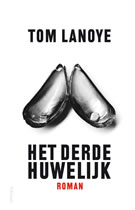 Tom Lanoye The Third Marriage
Tom Lanoye The Third Marriage
(Het derde huwelijk, 2006)
‘And what isn’t useful, simply disappears. No questions asked.’ Het derde huwelijk (The Third Marriage), Tom... -
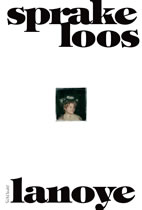 Tom Lanoye Speechless
Tom Lanoye Speechless
(Sprakeloos, 2009)
Tom Lanoye’s successful and well- received novel, Sprakeloos (Speechless), tells the story of the life and... -
Tom Lanoye Evil Tongues
(Boze tongen, 2002)
Tom Lanoye (born 1958) published the first part of an ambitious trilogy in 1997 Het goddelijke monster (The... -
Tom Lanoye Black Tears
(Zwarte tranen, 1999)
Zwarte tranen is the second novel in a cycle which began with Lanoye’s Het goddelijke monster (1997).... -
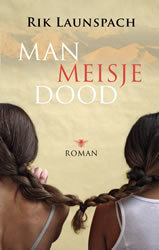 Rik Launspach Man girl dead
Rik Launspach Man girl dead
(Man meisje dood, 2011)
After his much-praised and filmed epic on the Flood Disaster, 1953, Rik Launspach has come up with a literary... -
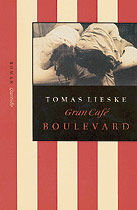 Tomas Lieske Gran Café Boulevard
Tomas Lieske Gran Café Boulevard
(Gran Café Boulevard, 2003)
Gran Café Boulevard has much in common with an old-fashioned adventure novel, with its sprawling narrative and... -
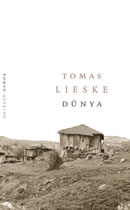 Tomas Lieske Dünya
Tomas Lieske Dünya
(Dünya, 2007)
‘My novels always evolve in the same way: I wait until I have a subject, a theme that I’m passionate about, and then I... -
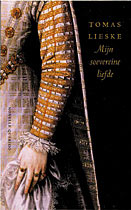 Tomas Lieske My Sovereign Love
Tomas Lieske My Sovereign Love
(Mijn soevereine liefde, 2005)
In the historical novella My Sovereign Love, Thomas Lieske takes the reader back to the court of Philip II of... -
Tomas Lieske Franklin
(Franklin, 2001)
After being nominated for the Libris Prize for his first novel, Nachtkwartier (Night Quarter, 1995),... -
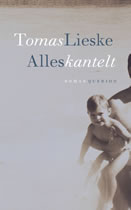 Tomas Lieske Everything Shifts
Tomas Lieske Everything Shifts
(Alles kantelt, 2010)
In 1972 Anton Milot, a man of thirty-four, meets his younger self on the street. He travels to Berlin with the boy he... -
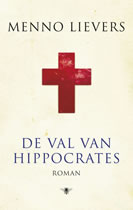 Menno Lievers The Fall of Hippocrates
Menno Lievers The Fall of Hippocrates
(De val van Hippocrates, 2009)
De val van Hippocrates (The Fall of Hippocrates) is all about guilt. As an adolescent, Erik Liefco, the main... -
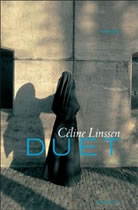 Céline Linssen Duet
Céline Linssen Duet
(Duet, 2007)
Margaretha Geertruida Zelle, better known as Mata Hari, continues to inspire historians, journalists and artists, even... -
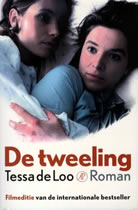 Tessa de Loo The Twins
Tessa de Loo The Twins
(De tweeling, 1993)
Her novel De tweeling is De Loo’s most ambitious work to date. Not only is it her most voluminous novel, its... -
Karel Glastra van Loon The Passion Fruit
(De passievrucht, 1999)
Karel Glastra van Loon’s first novel is a sublime treatment of a fascinating theme. During a hospital test, main... -
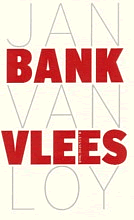 Jan van Loy Scraps
Jan van Loy Scraps
(Bankvlees, 2004)
The narrator in Scraps plays second fiddle to his ‘principled’ pal Celis who has made a conscious decision to... -
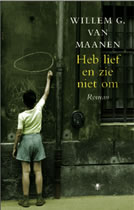 Willem G. van Maanen Love and Don’t Look Back
Willem G. van Maanen Love and Don’t Look Back
(Heb lief en zie niet om, 2006)
Over the last few decades Willem G. van Maanen has composed a wonderful and penetrating body of work in relative... -
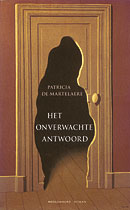 Patricia de Martelaere The Unexpected Answer
Patricia de Martelaere The Unexpected Answer
(Het onverwachte antwoord, 2004)
With The Unexpected Answer Patricia De Martelaere illustrates her claim that language is ‘not a tool’ but... -
Cynthia Mc Leod The Free Negress Elisabeth
(De vrije negerin Elisabeth, 2000)
As a former colonial power, the Netherlands has a long tradition of writers inspired by the tropics. Their ‘colonial’... -
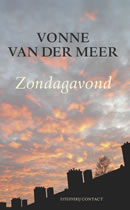 Vonne van der Meer Sunday Evening
Vonne van der Meer Sunday Evening
(Zondagavond, 2009)
Vonne van der Meer is clever at revealing the little frictions within everyday human intercourse and this places her at... -
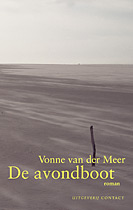 Vonne van der Meer The Night Boat
Vonne van der Meer The Night Boat
(De avondboot, 2001)
In her successful novel Eilandgasten (Island Guests), Vonne van der Meer had her characters arriving at a... -
Vonne van der Meer Island Guests
(Eilandgasten, 1999)
In what is by now the extensive oeuvre of Vonne van der Meer, islands occupy a place of prominence. Her characters... -
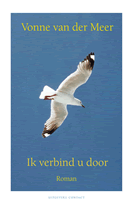 Vonne van der Meer I’ll Put You Through
Vonne van der Meer I’ll Put You Through
(Ik verbind u door, 2004)
In I’ll Put You Through Vonne van der Meer shows what huge consequences small acts can lead to. The story... -
Henk Romijn Meijer True Fidelity
(Oprechter trouw, 2001)
Although long divorced, the translator, Barend Fijnvandraat, and Hetty Oudewortel live together in a creaky Amsterdam... -
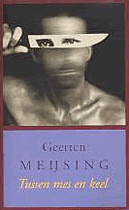 Geerten Meijsing Between Knife and Throat
Geerten Meijsing Between Knife and Throat
(Tussen mes en keel, 1997)
In Tussen mes en keel, Geerten Meijsing balances high-brow philosophy with apparent banality. At the start of... -
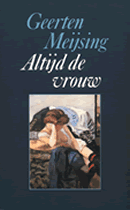 Geerten Meijsing Always the Woman
Geerten Meijsing Always the Woman
(Altijd de vrouw, 1991)
“Woman is ever fickle and changeable? wrote Virgil in the Aeneid, and Meijsing uses this quote as a thread running... -
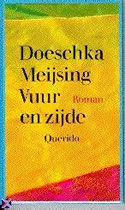 Doeschka Meijsing Fire And Silk
Doeschka Meijsing Fire And Silk
(Vuur en zijde, 1992)
All literary streams move in waves, both of action and reaction and of popularity and vilification. In the late... -
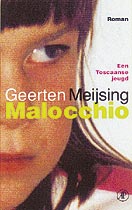 Geerten Meijsing Malocchio
Geerten Meijsing Malocchio
(Malocchio, 2003)
Malocchio by Geerten Meijsing is a melancholy, malicious, and yet romantic novel about a writer called Erik... -
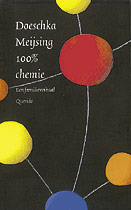 Doeschka Meijsing 100% Chemistry
Doeschka Meijsing 100% Chemistry
(100% chemie, 2002)
Despite the astonishing success of the novel The Second Man, Doeschka Meijsing has resisted the temptation... -
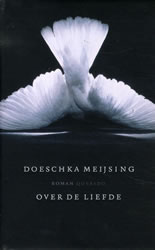 Doeschka Meijsing About Love
Doeschka Meijsing About Love
(Over de liefde, 2008)
The departure of her third great love after twelve years together has left Philippa, Pip to those close to her, in a... -
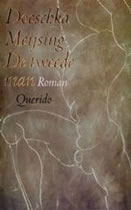 Doeschka Meijsing The Second Man
Doeschka Meijsing The Second Man
(De tweede man, 2000)
What happens to someone of modest means who comes into a substantial inheritance? In De tweede man poet and... -
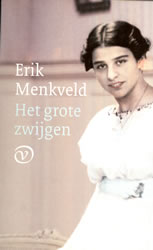 Erik Menkveld The Great Silence
Erik Menkveld The Great Silence
(Het grote zwijgen, 2011)
Erik Menkveld has made an impressive debut with a historical novel set in the Amsterdam music scene of the 1910s. The... -
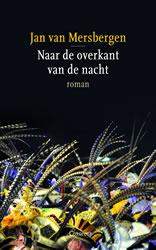 Jan van Mersbergen To the Other Side of the Night
Jan van Mersbergen To the Other Side of the Night
(Naar de overkant van de nacht, 2011)
Van Mersbergen’s work invariably focuses on characters who have a highly developed emotional life yet are barely able... -
Ivo Michiels The Book Alfa
(Het boek Alfa, 1963)
When, in the late 1960s, a German translation of one volume of the Alpha cycle was published, Samuel Beckett remarked... -
Ivo Michiels The miracles, Elisabeth, the miracles
(De mirakelen, Elisabeth, de mirakelen, 2001)
Ivo Michiels has often been referred to as an experimental writer, a term to which he himself takes exception. His work... -
Marga Minco Bitter Herbs
(Het bittere kruid, 1957)
Marga Minco is the only member of her immediate family to have survived the Second World War. Her father, mother,... -
Marga Minco The Fall
(De Val, 1983)
Frieda Borgstein’s husband and two children, all dead, are constantly on her mind. A friend had promised the Borgstein... -
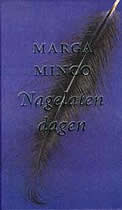 Marga Minco The Days They Left Behind
Marga Minco The Days They Left Behind
(Nagelaten dagen, 1997)
In Dutch literature no author is as closely associated with the process of coming to terms with World War II as Marga... -
Nicolien Mizee Then Mother came with a knife
(Toen kwam moeder met een mes, 2003)
Nicolien Mizee made her debut three years ago with the original novel Voor God en de Sociale Dienst (For God... -
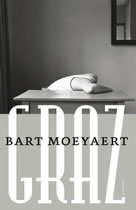 Bart Moeyaert Graz
Bart Moeyaert Graz
(Graz, 2009)
Bart Moeyaert’s new novel Graz was sparked by a repeat visit to that Austrian city at the invitation of the... -
Bart Moeyaert It Is Love That We Don’t Understand
(Het is de liefde die we niet begrijpen, 1999)
Can love still be the subject of a book? Bart Moeyaert proves to us that it can, and he does so in a highly original... -
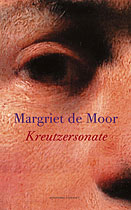 Margriet de Moor The Kreutzer Sonata
Margriet de Moor The Kreutzer Sonata
(Kreutzersonate, 2001)
De Moor has built her latest novel around the Kreutzersonate by the Czech composer, Leos Janácek, who, in turn, based... -
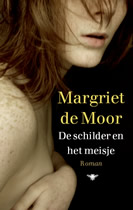 Margriet de Moor The Painter and the Girl
Margriet de Moor The Painter and the Girl
(De schilder en het meisje, 2010)
Margriet de Moor has the rare ability as a writer to touch upon the enigma of our existence, even to make known the... -
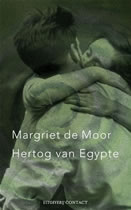 Margriet de Moor Duke of Egypt
Margriet de Moor Duke of Egypt
(Hertog van Egypte, 1996)
Margriet Moor’s has become a literary presence since the national and international success of Eerst grijs dan wit... -
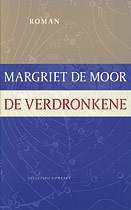 Margriet de Moor Drowned
Margriet de Moor Drowned
(De verdronkene, 2005)
Margriet de Moor has proved in her novels and short stories that she can say all she wants with very little. Her... -
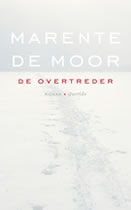 Marente de Moor The Transgressor
Marente de Moor The Transgressor
(De overtreder, 2007)
In De overtreder (The Transgressor), Marente de Moor paints a compassionate picture of the world of East... -
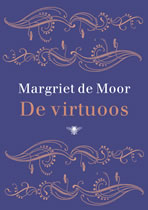 Margriet de Moor The Virtuoso
Margriet de Moor The Virtuoso
(De virtuoos, 1993)
In Margriet de Moor’s novels and stories, amorous relationships are usually a source of conflict, as devotion imposes... -
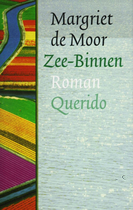 Margriet de Moor The Sea Road
Margriet de Moor The Sea Road
(Zee-binnen, 1999)
Those who have been dazzled by the beauty of brightly-coloured fields of flowers in full bloom immediately behind the... -
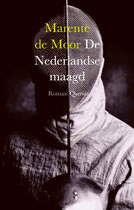 Marente de Moor The Dutch Maiden
Marente de Moor The Dutch Maiden
(De Nederlandse maagd, 2010)
In the summer of 1936, the Dutch doctor Jacq sends his eighteen-year-old daughter Janna to stay with Egon von... -
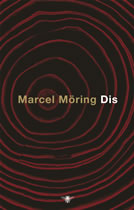 Marcel Möring In a Dark Wood
Marcel Möring In a Dark Wood
(Dis, 2006)
If love died at Auschwitz, is there any hope of reviving it? This is a crucial question in Dis (In a Dark... -
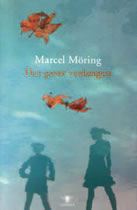 Marcel Möring The Great Longing
Marcel Möring The Great Longing
(Het grote verlangen, 1992)
Marcel Möring’s opinions on political and social developments are frequently sought. Both inside and outside his... -
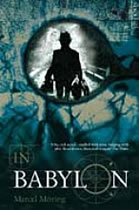 Marcel Möring In Babylon
Marcel Möring In Babylon
(In Babylon, 1997)
‘I try to take a new step in my development with each book,’ stated the author on the appearance of this novel. ‘Not... -
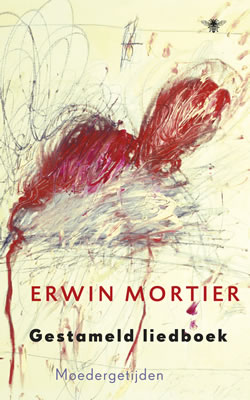 Erwin Mortier Stammered Songs
Erwin Mortier Stammered Songs
(Gestameld liedboek, 2011)
‘My mother gave me a dusting today. She thought I was furniture.’ *Gestameld liedboek* (Stammered Songs) is one of... -
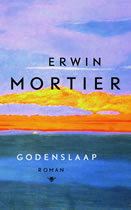 Erwin Mortier Divine Sleep
Erwin Mortier Divine Sleep
(Godenslaap, 2008)
The First World War is the main theme of Erwin Mortier’s new novel Godenslaap (Divine Sleep), its magnitude... -
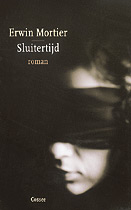 Erwin Mortier Shutterspeed
Erwin Mortier Shutterspeed
(Sluitertijd, 2002)
With his third novel, Sluitertijd (Shutterspeed) Erwin Mortier concludes a series that began with his... -
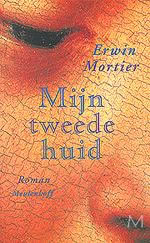 Erwin Mortier My Second Skin
Erwin Mortier My Second Skin
(Mijn tweede huid, 2000)
Erwin Mortier is a promising writer who astonished the literary world eighteen months ago with his debut... -
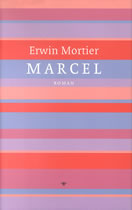 Erwin Mortier Marcel
Erwin Mortier Marcel
(Marcel, 1999)
Marcel bears witness to Erwin Mortier’s exceptional writing talent. His first novel, peppered with countless... -
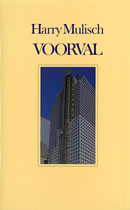 Harry Mulisch Incident
Harry Mulisch Incident
(Voorval, 1989)
In Voorval an engineer of a skyscraper still being built says to a colleague: ‘I’m going out for a bit of... -
 Harry Mulisch Archibald Strohalm
Harry Mulisch Archibald Strohalm
(Archibald Strohalm, 1951)
On publication of his debut novel Archibald Strohalm in 1951, Harry Mulisch was immediately recognized as a... -
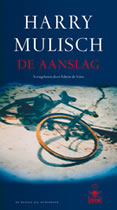 Harry Mulisch The Assault
Harry Mulisch The Assault
(De aanslag, 1982)
In the ‘hunger winter’ of 1945 a communist resistance-group assassinates a chief inspector of police, Mr. Fake Ploeg.... -
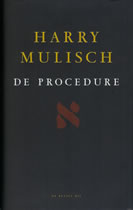 Harry Mulisch The Procedure
Harry Mulisch The Procedure
(De procedure, 1998)
Anyone who reads Harry Mulisch must have a penchant for deciphering codes, tracking down clues, and unravelling... -
 Harry Mulisch The Discovery of Heaven
Harry Mulisch The Discovery of Heaven
(De ontdekking van de hemel, 1992)
De ontdekking van de hemel is Harry Mulisch’s magnum opus. All the paths he has taken in his previous work... -
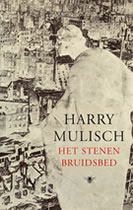 Harry Mulisch The Stone Bridal Bed
Harry Mulisch The Stone Bridal Bed
(Het stenen bruidsbed, 1959)
Harry Mulisch is a philosophical author who does not shun the great issues of life. This is evident in his magnum opus... -
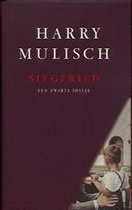 Harry Mulisch Siegfried: A Black Idyll
Harry Mulisch Siegfried: A Black Idyll
(Siegfried: een zwarte idylle, 2000)
Harry Mulisch has written his best works late in life. At the age of 65 he completed De ontdekking van de... -
Charlotte Mutsaers Sea Pine
(Zeepijn, 1999)
Zeepijn is a lively book of sparkling, narrative essays about the sea, pine trees, fish, and fir cones,... -
Nescio The Sponger, Young Titans and Little Poet
(De uitvreter, Titaantjes, Dichtertje, 1911-1918)
The Sponger (De uitvreter) and Young Titans (Titaantjes) take place within a circle of young... -
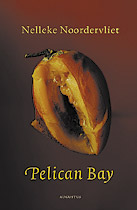 Nelleke Noordervliet Pelican Bay
Nelleke Noordervliet Pelican Bay
(Pelican Bay, 2002)
After her father’s death writer Ada van de Wetering is left burdened with feelings of guilt. Did she really make her... -
Nelleke Noordervliet Paradise Lost
(Uit het paradijs, 1997)
In an interview last year Nelleke Noordervliet said that she had always felt an outsider since childhood. It is no... -
Nelleke Noordervliet The Eye of the Angel
(Het oog van de engel, 1991)
Noordervliet sets her novel in the time around the French Revolution. The beautiful young woman from Haarlem, Elisabeth... -
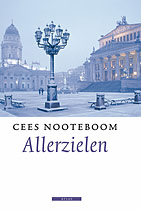 Cees Nooteboom All Souls
Cees Nooteboom All Souls
(Allerzielen, 1998)
Forty-five-year-old Arthur Daane, the central figure in Allerzielen, is a maker of TV documentaries. It is no... -
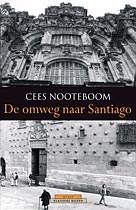 Cees Nooteboom Roads to Santiago
Cees Nooteboom Roads to Santiago
(De omweg naar Santiago, 1992)
For this book the born traveller Nooteboom made a selection from the many articles he has written about Spain over the... -
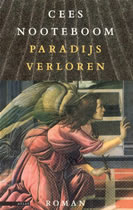 Cees Nooteboom Lost Paradise
Cees Nooteboom Lost Paradise
(Paradijs verloren, 2004)
Cees Nooteboom’s Lost Paradise tells of an accidental meeting between two former lovers and is written in a... -
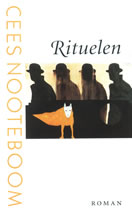 Cees Nooteboom Rituals
Cees Nooteboom Rituals
(Rituelen, 1980)
Set in Amsterdam during the 1950s, 1960s, and 1970s, the novel opens with the protagonist’s attempted suicide after his... -
Ellen Ombre False Desires
(Valse verlangens, 2000)
Once the Atlantic triangle – Holland, West Africa and the Caribbean – was a trade route carrying gold, slaves and arms.... -
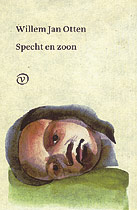 Willem Jan Otten Specht and Son
Willem Jan Otten Specht and Son
(Specht en zoon, 2004)
In Willem Jan Otten’s new novel Specht and Son the canvas tells the story rather than the young painter Felix... -
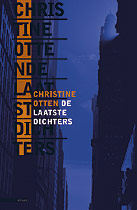 Christine Otten The Last Poets
Christine Otten The Last Poets
(De laatste dichters, 2004)
In The Last Poets, Christine Otten writes about the lives of four Afro- American poets who were popular in the... -
Willem Jan Otten Nothing Wrong with Us
(Ons mankeert niets, 1994)
Euthanasia is the heated subject of a current discussion in the Dutch parliament, the courts and the media. Under which... -
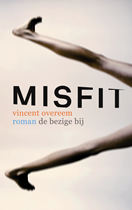 Vincent Overeem Misfit
Vincent Overeem Misfit
(Misfit, 2008)
In Amsterdam one stifling hot summer, an eighteen-year-old boy experiences an intense, physical love for his... -
Monika van Paemel Roses on Ice
(Rozen op ijs, 1997)
There are reasons why Perla should voluntarily accept the status of an environmental activist. That she has never... -
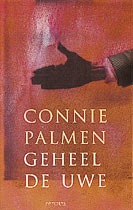 Connie Palmen Sincerely Yours
Connie Palmen Sincerely Yours
(Geheel de uwe, 2002)
In her previous novel, I.M. (1998), Palmen wrote an autobiographical ‘in memoriam’ about Ischa Meijer, her... -
Connie Palmen I.M.
(I.M., 1998)
Shortly after the publication of her first novel, De wetten (The Laws, 1991), Connie Palmen met the notorious... -
Connie Palmen The Friendship
(De vriendschap, 1995)
A thirty-year-old psychologist-philosopher recoils from the indigestible and inaccessible language of academia. Instead... -
Josse de Pauw Work
(Werk, 2000)
'Writing is not hard labour,’ says Josse de Pauw. And: 'I like to write’. This is evident from his smooth, supple... -
 Joseph Pearce Colonial Wares
Joseph Pearce Colonial Wares
(Koloniale waren, 2001)
Joseph Pearce (b. 1951) debuted in 1999 with Land van belofte (The Promised Land), a remarkable novel... -
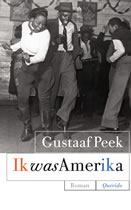 Gustaaf Peek I Was America
Gustaaf Peek I Was America
(Ik was Amerika, 2010)
The German prisoners of war interned in American prison camps during World War II are a forgotten page of history.... -
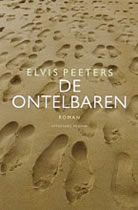 Elvis Peeters The Uncountables
Elvis Peeters The Uncountables
(De ontelbaren, 2006)
De ontelbaren (‘The Uncountables’) is a novel which brings to life the consequences of the warped relationship... -
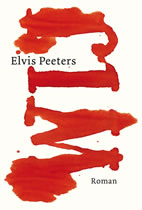 Elvis Peeters We
Elvis Peeters We
(Wij, 2009)
The new, controversial novel Wij (We) by Elvis Peeters is about eight underage boys and girls in a close-knit... -
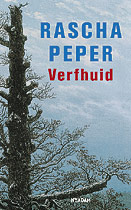 Rascha Peper Dyed in the Skin
Rascha Peper Dyed in the Skin
(Verfhuid, 2005)
In an interview, Rascha Peper described her characters as ‘people who are barely able to cope with reality, who hold... -
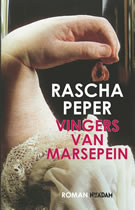 Rascha Peper Marzipan Fingers
Rascha Peper Marzipan Fingers
(Vingers van marsepein, 2008)
Passion is the central theme in Rascha Peper’s work. Whether it is the love of German Romantic painting in... -
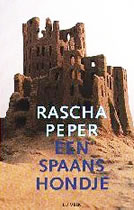 Rascha Peper A Spanish Dog
Rascha Peper A Spanish Dog
(Een Spaans hondje, 1998)
Though her choice of subject is anything but everyday, Rascha Peper writes clear and compelling fiction. Her style... -
Rascha Peper Embarkation
(Wie scheep gaat, 2003)
Since her debut De waterdame (The Water Lady), a collection of short stories, Rascha Peper has steadily... -
Rascha Peper Russian Blue
(Russisch blauw, 1995)
Unemployed historian Lex Grol (29) has always been fascinated by the fall of the old tsarist regime. In the summer in... -
Rascha Peper Exercises in Manliness
(Oefeningen in manhaftigheid, 1992)
“… the night’s sleepless hour/ when the decision’s made?” is a quotation from a poem by the respected Dutch poet Ida... -
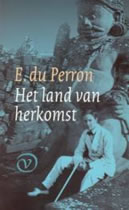 E. Du Perron Country of origin
E. Du Perron Country of origin
(Het land van herkomst, 1935)
Eddy du Perron - usually shortened to E. du Perron - along with his friend Menno ter Braak, gave colour, taste and... -
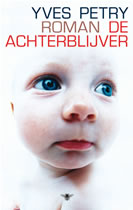 Yves Petry The Straggler
Yves Petry The Straggler
(De achterblijver, 2006)
Yves Petry studied mathematics and philosophy and this might be why his characters challenge received ideas and common... -
 Yves Petry Year of the Man
Yves Petry Year of the Man
(Het jaar van de man, 1999)
Het jaar van de man, the debut of Flemish writer Yves Petry, begins with the setting of autumn portrayed... -
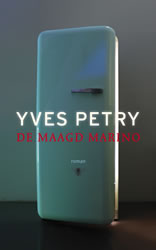 Yves Petry The Virgin Marino
Yves Petry The Virgin Marino
(De Maagd Marino, 2010)
De maagd Marino (The Virgin Marino), Yves Petry’s fifth novel, is his most characteristic and ambitious to... -
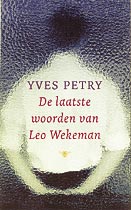 Yves Petry The Last Words of Leo Wekeman
Yves Petry The Last Words of Leo Wekeman
(De laatste woorden van Leo Wekeman, 2003)
Leo Wekeman, a journalist writing for a liberal newspaper, lays his experience and reputation on the line for a chance... -
Leo Pleysier Black with People
(Zwart van het volk, 1996)
A young Fleming studies agricultural engineering in Louvain, gains his doctorate in soil science and at the age of... -
Leo Pleysier Next Year in Berchem
(Volgend jaar in Berchem, 2000)
In 1989 Leo Pleysier started writing a series of books in which various family members talk about their lives and about... -
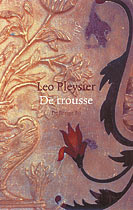 Leo Pleysier The Doctor’s Bag
Leo Pleysier The Doctor’s Bag
(De trousse, 2004)
In The Doctor’s Bag Leo Pleysier presents Auntie Roza, an elderly missionary nun, talking about her life in a... -
Durk van der Ploeg Journey to the Kalkman
(Reis nei de Kalkman, 1995)
For years Günther Ewaldsen has owned a holiday home in Nes, on the coast of Friesland. After his divorce he begins a... -
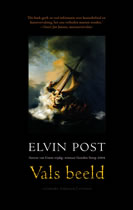 Elvin Post Fake
Elvin Post Fake
(Vals beeld, 2006)
Two security guards at an American museum are sitting in their office at night, oblivious to what’s going on outside.... -
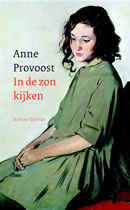 Anne Provoost Looking into the Sun
Anne Provoost Looking into the Sun
(In de zon kijken, 2007)
Anne Provoost’s new novel, In de zon kijken (Looking into the Sun), is set on a ranch in Australia, home of... -
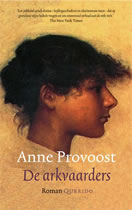 Anne Provoost In the Shadow of the Ark
Anne Provoost In the Shadow of the Ark
(De arkvaarders, 2001)
In her third novel The Rose and the Pig (1997) Anne Provoost tackles the theme of Beauty and the Beast. In her... -
Maya Rasker Unknown Destination
(Met onbekende bestemming, 2000)
Maya Rasker’s intriguing and thrilling tale has elicited praise from all quarters. Met onbekende bestemming... -
Wanda Reisel The Promised Life
(Het beloofde leven, 1993)
Fax messages, monologues, dialogues, descriptions: on the face of it Wanda Reisel’s new novel appears to have a rather... -
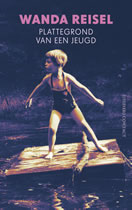 Wanda Reisel Blueprint of a Youth
Wanda Reisel Blueprint of a Youth
(Plattegrond van mijn jeugd, 2010)
It was a monumental five-storey building with sixteen rooms and a garden bordering on the Vondelpark in Amsterdam: a... -
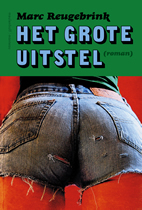 Marc Reugebrink The Big Delay
Marc Reugebrink The Big Delay
(Het grote uitstel, 2007)
The seductive promise of 1968 of change and prosperity gave way within fewer than ten years by the No future! slogan of... -
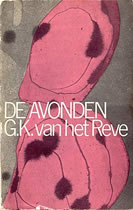 Gerard Reve The Evenings
Gerard Reve The Evenings
(De avonden, 1947)
When the novel De avonden first appeared, Reve was hailed as ‘the voice of a generation’. Since then the book... -
 Gerard Reve The Book Of Violet And Death
Gerard Reve The Book Of Violet And Death
(Het boek van violet en dood, 1996)
This novel’s remarkable title – derived from an old handbook for neurotics which was the constant companion of Reve’s... -
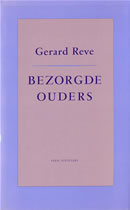 Gerard Reve Parents Worry
Gerard Reve Parents Worry
(Bezorgde ouders, 1988)
The last name of the main character in Bezorgde ouders ‘Treger resembles both Reve and Egters and this is not... -
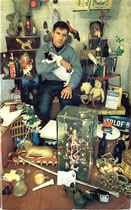 Gerard Reve On My Way to the End
Gerard Reve On My Way to the End
(Op weg naar het einde, 1963)
In the 1960s Gerard Reve’s career entered a new phase when he discovered that the letter was his ideal literary form.... -
David van Reybrouck The Plague
(De plaag, 2001)
While working on his thesis on prehistoric architecture, David van Reybrouck comes across the accusation that the... -
Trinus Riemersma Ginger Tomcat
(Ginger Tomcat, 1992)
When the novel De reade bwarre by Trinus Riemersma was awarded the highest literary prize of Friesland... -
Astrid H. Roemer Looks Like Love
(Lijken op liefde, 1997)
In Dutch the word ‘lijken’ has two meanings, as a result this book’s title can be read in two ways: it can mean... -
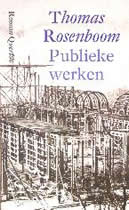 Thomas Rosenboom Public Works
Thomas Rosenboom Public Works
(Publieke werken, 1999)
Publieke werken is written in a florid style, highly appropriate to the historical period of its setting: the... -
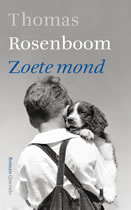 Thomas Rosenboom Sweet Mouth
Thomas Rosenboom Sweet Mouth
(Zoete mond, 2009)
Sweet Mouth, the title of this doorstopping fifth novel by Thomas Rosenboom, is borrowed from the author’s... -
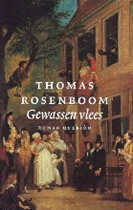 Thomas Rosenboom Washed Flesh
Thomas Rosenboom Washed Flesh
(Gewassen vlees, 1994)
Though – according to the German critic-cum-oracle Marcel Reich-Ranicki – literary tomes belong back in the era of the... -
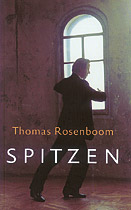 Thomas Rosenboom Point Shoes
Thomas Rosenboom Point Shoes
(Spitzen, 2004)
Although Rosenboom’s newest novel Point Shoes is set in contemporary Amsterdam rather than being historical,... -
 Thomas Rosenboom The New Man
Thomas Rosenboom The New Man
(De nieuwe man, 2003)
Thomas Rosenboom is the master of downfall. In his work he steadily guides his characters, subtly, ironically, to their... -
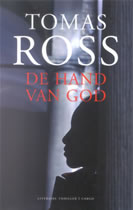 Tomas Ross The Hand of God
Tomas Ross The Hand of God
(De hand van God, 2006)
Tomas Ross must be the fastest writer in The Netherlands. While working on a trilogy about the Second World War, the... -
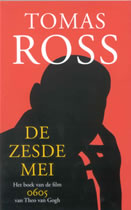 Tomas Ross The Sixth of May
Tomas Ross The Sixth of May
(De zesde mei, 2003)
On 6 may 2002, two weeks before a General Election, Volkert van der Graaf assassinated Pim Fortuyn, the populist... -
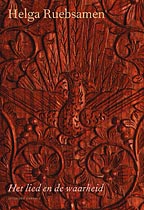 Helga Ruebsamen The Song and the Truth
Helga Ruebsamen The Song and the Truth
(Het lied en de waarheid, 1997)
Throughout her writing career Helga Ruebsamen has been something of a writer‘s writer. Not because her short story... -
Helga Ruebsamen The Dancing Tomcat
(De dansende kater, 1992)
‘What I just experienced must have been a hallucination. But what isn’t?’ mumbles Otto in the story ‘Model’. He’s a... -
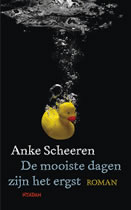 Anke Scheeren The Most Beautiful Days are the Worst
Anke Scheeren The Most Beautiful Days are the Worst
(De mooiste dagen zijn het ergst, 2009)
Student Lena Fernhout is the central figure in this tragicomic debut novel by Anke Scheeren. Aged twenty-four, she... -
Arthur van Schendel The Johanna Maria
(Het fregatschip Johanna Maria, 1930)
For many centuries the Netherlands was a leading and prosperous seafaring nation, and a colonial power. Its leaders... -
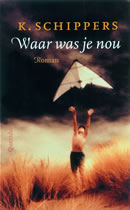 K. Schippers Where Were You
K. Schippers Where Were You
(Waar was je nou, 2005)
Waar was je nou (‘Where were you’) is filled, as so often in Schippers’ books, with parallel worlds. On the... -
K. Schippers Zilah
(Zilah, 2002)
K. Schippers is not a writer of clear-cut novels. He always puts forward an idea, a philosophy or a surprising insight... -
Philibert Schogt Daalder
(Daalder, 2002)
Patrick Süskind wrote an unforgettable ode to the nose with Perfume. Now, Philibert Schogt has paid an... -
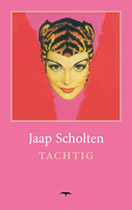 Jaap Scholten Eighty
Jaap Scholten Eighty
(Tachtig, 1995)
The structure of this book betrays Scholten’s considerable cinematic talent. He succeeds in transforming a static theme... -
 Jaap Scholten Spengler’s Law
Jaap Scholten Spengler’s Law
(De wet van Spengler, 2008)
The Spenglers are a well-to-do family from the province of Twente. They own landed estates, have several cars and... -
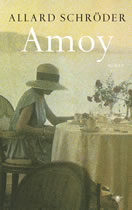 Allard Schröder Amoy
Allard Schröder Amoy
(Amoy, 2009)
Novels by Allard Schröder invariably take place in a shadowy realm, on the borders of life and death. The setting... -
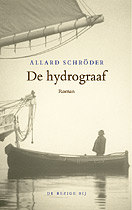 Allard Schröder The Hydrographer
Allard Schröder The Hydrographer
(De hydrograaf, 2002)
In this novel Schröder has brilliantly and menacingly depicted the fascination for the ocean deeps. He conjures up the... -
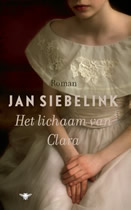 Jan Siebelink Clara’s Body
Jan Siebelink Clara’s Body
(Het lichaam van Clara, 2010)
In his latest novel, Het lichaam van Clara (Clara’s Body), Jan Siebelink returns to the enchanting, dark... -
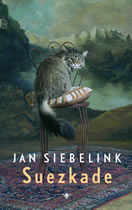 Jan Siebelink Suezkade
Jan Siebelink Suezkade
(Suezkade, 2008)
Just as in his best-selling Kneeling on a Bed of Violets, Jan Siebelink again returned to his rigidly devout... -
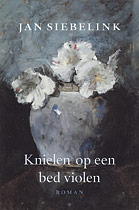 Jan Siebelink Kneeling on a Bed of Violets
Jan Siebelink Kneeling on a Bed of Violets
(Knielen op een bed violen, 2005)
After writing for thirty years, Jan Siebelink is experiencing an unprecedented triumph with Knielen op een bed... -
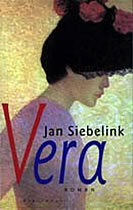 Jan Siebelink Vera
Jan Siebelink Vera
(Vera, 1997)
Through eighty tightly-orchestrated scenes, we follow the life of a woman who, at the end of the book – when we have... -
J. Slauerhoff The Forbidden Realm
(Het verboden rijk, 1932)
The Forbidden Realm (Het verboden rijk, 1932) is the story of the sixteenth-century Portuguese poet and seaman... -
Pauline Slot Southern Cross
(Zuiderkruis, 1999)
Pauline Slot’s first novel is about friendship between women, about girlfriends who have known each other for decades,... -
Nicolette Smabers Chinese in Glass
(Chinezen van glas, 1991)
Stopping to look at the ordinary things in life, that is the typical attitude of the main characters in all three of... -
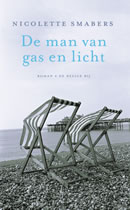 Nicolette Smabers The Gas and Electricity Man
Nicolette Smabers The Gas and Electricity Man
(De man van gas en licht, 2009)
Nicolette Smabers once said in an interview, that ‘story telling is an act of love’. This statement characterizes the... -
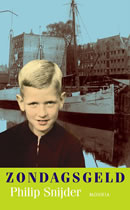 Philip Snijder Sunday Money
Philip Snijder Sunday Money
(Zondagsgeld, 2007)
Not far from Central Station in Amsterdam is Bickerseiland, a piece of reclaimed land, a lively harbour in the... -
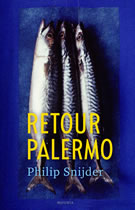 Philip Snijder Return to Palermo
Philip Snijder Return to Palermo
(Retour Palermo, 2011)
Philip Snijder made his debut in 2007 with Sunday Money, an autobiographical novel about growing up in a poor... -
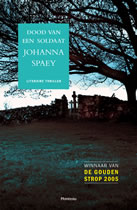 Johanna Spaey Death of a Soldier
Johanna Spaey Death of a Soldier
(Dood van een soldaat, 2005)
The Great War of 1914-18 made deeper wounds in Belgium than the Second World War. Memorials, exhibitions, and books... -
F. Springer Bandoeng-Bandung
(Bandoeng-Bandung, 1993)
In the work of the writer Springer it is possible to trace the diplomat Schneider’s postings. New Guinea, New York,... -
F. Springer Kandy
(Kandy, 1998)
F. Springer is a born writer who has had the advantage of having spent his entire working life as a diplomat. His... -
F. Springer Collected Works
(Verzameld werk, 2001)
F. Springer, pseudonym for Carel Jan Schneider, was an administrative officer and diplomat who travelled the world in... -
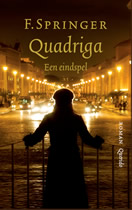 F. Springer Quadriga, An End-Game
F. Springer Quadriga, An End-Game
(Quadriga, een eindspel, 2010)
The subtitle of F. Springer’s new novel Quadriga strikes a sensitive note with his readers, ‘end-game’ refers... -
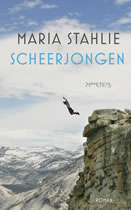 Maria Stahlie The Barber’s Boy
Maria Stahlie The Barber’s Boy
(Scheerjongen, 2010)
In The Barber’s Boy, Maria Stahlie opens up the difficult and magical world of 16-year-old Aldo Rossi, the son... -
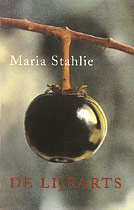 Maria Stahlie The Personal Physician
Maria Stahlie The Personal Physician
(De lijfarts, 2002)
Maria Stahlie’s novel The Personal Physician is a bold venture in every sense. It is substantial, with dense... -
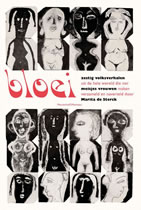 Marita de Sterck Bloom
Marita de Sterck Bloom
(Bloei, 2010)
Marita de Sterck is a keen advocate of Homo narrans, the human as storyteller. She spent twenty-five years... -
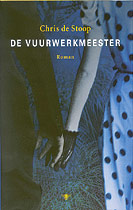 Chris de Stoop The Fireworks Master
Chris de Stoop The Fireworks Master
(De vuurwerkmeester, 2005)
De Stoop turned to fiction with De vuurwerkmeester (‘The Fireworks Master’) a novel that is well documented... -
Arie Storm Feeling
(Gevoel, 2004)
In his work Arie Storm ridicules the eternal question about autobiographical reality behind novels by apparently... -
Stijn Streuvels The Flax Field
(De vlaschaard, 1907)
After moving into the house The Thrush’s Nest in the village of Ingooigem, the Flemish writer Stijn Streuvels... -
Herman Teirlinck The Man in the Mirror
(Zelfportret of het galgemaal, 1955)
The theme of Herman Teirlinck’s final novel, The Man in the Mirror, remains extraordinarily topical. The main... -
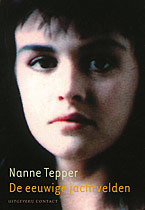 Nanne Tepper The Happy Hunting Grounds
Nanne Tepper The Happy Hunting Grounds
(De eeuwige jachtvelden, 1995)
Nanne Tepper’s first novel received reviews in which he was acclaimed as a daring author who inventively showed which... -
Elizabeth Termeer Dance of the Daughters
(De dans van de dochters, 1999)
Elizabeth Termeer is a clever storyteller. Her most recent book, De dans van de dochters describes the lives... -
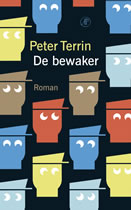 Peter Terrin The Guard
Peter Terrin The Guard
(De bewaker, 2009)
Peter Terrin’s new novel, De bewaker (The Guard), is set largely in the underground car park of a huge luxury... -
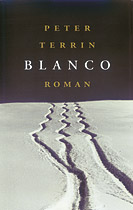 Peter Terrin Blanco
Peter Terrin Blanco
(Blanco, 2003)
In Peter Terrin’s first three novels, emotions are expressed largely in terms of alienation and oppression. In... -
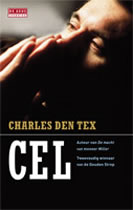 Charles den Tex Cell
Charles den Tex Cell
(Cel, 2008)
It is every citizen’s dilemma in this era of ever advancing information technology: can privacy still be protected now... -
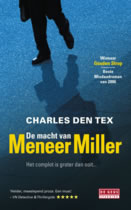 Charles den Tex The Power of Mr Miller
Charles den Tex The Power of Mr Miller
(De macht van meneer Miller, 2005)
An office without a computer has become an anomaly. Nowadays no office can do without, and in almost every home there’s... -
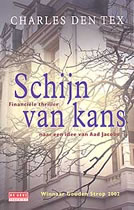 Charles den Tex Chance in Hell
Charles den Tex Chance in Hell
(Schijn van kans, 2002)
A few years ago, when Aad Jacobs, former CEO of the ING Group, appeared on a Dutch television show, he was offered a... -
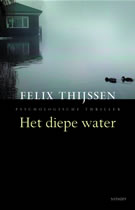 Felix Thijssen Deep Water
Felix Thijssen Deep Water
(Het diepe water, 2006)
Felix Thijssen’s books are irresistible. He writes beautifully, his plots are easy to follow although they have enough... -
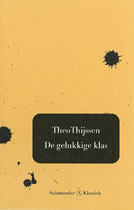 Theo Thijssen The Happy Class
Theo Thijssen The Happy Class
(De gelukkige klas, 1926)
‘Don’t let anyone tell you being a schoolmaster isn’t an adventurous job…’ The speaker is Staal, a teacher at an... -
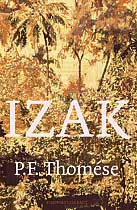 P.F. Thomése Izak
P.F. Thomése Izak
(Izak, 2005)
Taking into account the name of the title character, Izak would seem to form a counterpart to Thomése’s... -
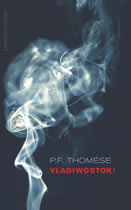 P.F. Thomése Vladivostok!
P.F. Thomése Vladivostok!
(Vladiwostok!, 2007)
P. F.Thomése broke through internationally in 2003 with Schaduwkind (Shadow Child), the heartbreaking story of... -
 P.F. Thomése The Sixth Act
P.F. Thomése The Sixth Act
(Het zesde bedrijf, 1999)
In Het zesde bedrijf P.F. Thomése tells the life story of Etta Palm (1743-99), who was born in Groningen and... -
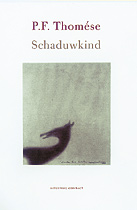 P.F. Thomése Shadow Child
P.F. Thomése Shadow Child
(Schaduwkind, 2003)
This is a record in just over one hundred pages of P.F. Thomése’s thoughts and feelings following the sudden death of... -
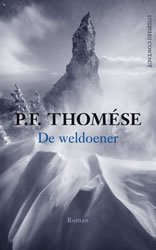 P.F. Thomése A Girl of His Own
P.F. Thomése A Girl of His Own
(De weldoener, 2010)
A married man of about fifty. Half a life later, with a wife and son, he returned to his hometown H, where he was... -
Felix Timmermans Pallieter
(Pallieter, 1916)
In the early twentieth century Felix Timmermans was wrestling with a religious and moral crisis, partly because of the... -
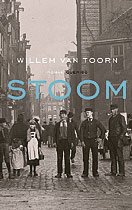 Willem van Toorn Steam
Willem van Toorn Steam
(Stoom, 2005)
Steam is a captivating novel about a turning point in Dutch history: the general strike of 1903. Railroad... -
Willem van Toorn The River
(De rivier, 2000)
‘Why did you take me with you?’ Willem van Toorn asks his father forty years after the event he still vividly recalls... -
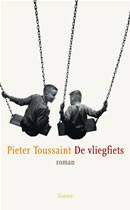 Pieter Toussaint The Flying Bicycle
Pieter Toussaint The Flying Bicycle
(De vliegfiets, 2006)
Inspired by the myth of Icarus, Pieter Toussaint has written a fascinating novel about the triumph that is sometimes... -
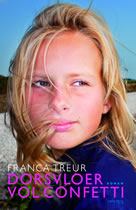 Franca Treur Confetti on the Threshing Floor
Franca Treur Confetti on the Threshing Floor
(Dorsvloer vol confetti, 2009)
The enormous success of Franca Treur’s debut Dorsvloer vol confetti (Confetti on the Threshing Floor) has more... -
Aleid Truijens No Night Without
(Geen nacht zonder, 2004)
Like P.F. Thomése’s acclaimed bestseller Schaduwkind (Shadow Child), Aleid Truijens’ prose debut Geen... -
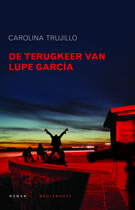 Carolina Trujillo The Return of Lupe García
Carolina Trujillo The Return of Lupe García
(De terugkeer van Lupe García, 2009)
Gono, the narrator, fell in love with Lupe García at school the day he met her. She had returned from exile in The... -
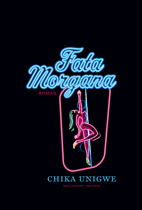 Chika Unigwe Fata Morgana
Chika Unigwe Fata Morgana
(Fata Morgana, 2007)
The four African women in Fata Morgana, who work as prostitutes in Antwerp, are not entirely dissatisfied with... -
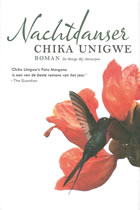 Chika Unigwe Night Dancer
Chika Unigwe Night Dancer
(Nachtdanser, 2010)
Night Dancer, Chika Unigwe’s third novel, is based on the contrast that exists between tradition and modern... -
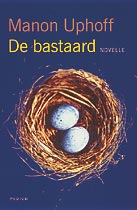 Manon Uphoff The Bastard Son
Manon Uphoff The Bastard Son
(De bastaard, 2004)
The Bastard Son is situated in the second half of the nineteenth century, a time that Uphoff evokes in... -
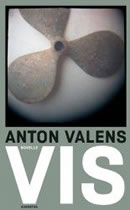 Anton Valens Fish
Anton Valens Fish
(Vis, 2009)
Anton Valens’ characters invariably attempt to make an unknown world their own. In his widely praised debut... -
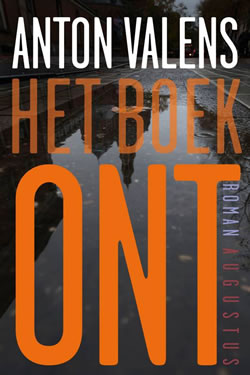 Anton Valens Man&Post;
Anton Valens Man&Post;
(Het boek Ont, 2012)
This is an unforgettable story whose author sustains a precarious balance between cheerful nonsense and high... -
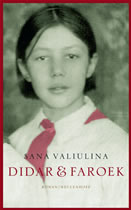 Sana Valiulina Didar and Faruk
Sana Valiulina Didar and Faruk
(Didar en Faroek, 2006)
An epic love story in the narrative tradition of Dostoevsky and Tolstoy, but this time with Stalinist Russia as the... -
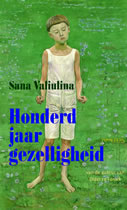 Sana Valiulina A Hundred Years of Conviviality
Sana Valiulina A Hundred Years of Conviviality
(Honderd jaar gezelligheid, 2010)
After her epic novel, Didar and Faruk – nominated for the Libris Literature Prize 2007 – set in Stalinist... -
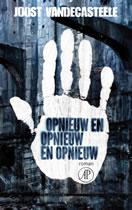 Joost Vandecasteele Again and Again and Again
Joost Vandecasteele Again and Again and Again
(Opnieuw en opnieuw en opnieuw, 2010)
In Opnieuw en opnieuw en opnieuw (Again and Again and Again) young Flemish writer Joost Vandecasteele just as... -
 Annelies Verbeke Sleep!
Annelies Verbeke Sleep!
(Slaap!, 2004)
Maya is an insomniac whom nothing and nobody can help. She wanders the city at night envying those who can take a good... -
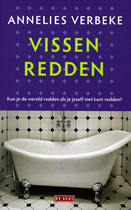 Annelies Verbeke Saving Fish
Annelies Verbeke Saving Fish
(Vissen redden, 2009)
Annelies Verbeke’s new novel, Vissen redden (Saving Fish), is imbued with the pain of love lost. After writer... -
Paul Verhaeghen Omega Minor
(Omega Minor, 2004)
Omega minor is a bildungsroman of international scope in which the author lays bare the essence of human nature – and... -
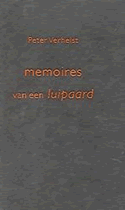 Peter Verhelst Memoirs of a Leopard
Peter Verhelst Memoirs of a Leopard
(Memoires van een luipaard, 2001)
Peter Verhelst’s work often incorporates elements from Classical antiquity or mythology, for him stories with a solemn,... -
Peter Verhelst Tongue Cat
(Tongkat, 1999)
These days, the pursuit of perfection is all around us, a pursuit that is based on the notion that we can alter the... -
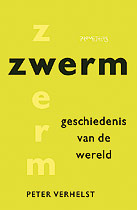 Peter Verhelst Swarm
Peter Verhelst Swarm
(Zwerm, 2005)
In Zwerm (Swarm) Peter Verhelst has generated a kaleidoscope of the violence, commotion, tense relationships,... -
Peter Verhelst The Muscle Alphabet
(Het spierenalfabet, 1995)
The novel’s nameless main character is a young man who has been given the task of cataloguing an ancient library’s... -
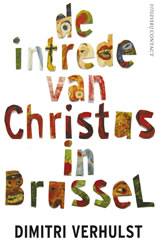 Dimitri Verhulst Entry of Christ into Brussels
Dimitri Verhulst Entry of Christ into Brussels
(De intrede van Christus in Brussel, 2011)
One day, the news announces that Jesus Christ is to visit Belgium on its national holiday, the 21st of July. During the... -
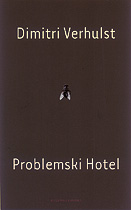 Dimitri Verhulst Problemski Hotel
Dimitri Verhulst Problemski Hotel
(Problemski Hotel, 2003)
Dimitri Verhulst spent several sobering days in a Belgian centre for asylum-seekers. This led to Problemski Hotel in... -
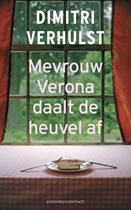 Dimitri Verhulst Mrs Verona Comes Down from the Hill
Dimitri Verhulst Mrs Verona Comes Down from the Hill
(Mevrouw Verona daalt de heuvel af, 2006)
With Mevrouw Verona daalt de heuvel af, a subdued, sensitive novella, Dimitri Verhulst adds a new dimension to... -
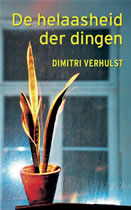 Dimitri Verhulst The Misfortunates
Dimitri Verhulst The Misfortunates
(De helaasheid der dingen, 2006)
Dimitri Verhulst enjoys writing about his own background, and from a certain cynical remoteness. In... -
Paul Verhuyck Wood and Brass
(Hout en koper, De Standaar)
The narrator in Hout en koper once attended lectures given by a professor who was obsessed by 'telling stories... -
Eriek Verpale Gitta
(Gitta, 1997)
'In September of the year nineteen-hundred and seventy-six, I had been married for three years and was hopelessly in... -
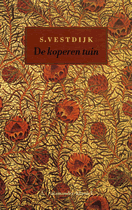 Simon Vestdijk The Garden where the Brass Band Played
Simon Vestdijk The Garden where the Brass Band Played
(De koperen tuin, 1950)
‘Versatile’ is an understatement when it comes to Simon Vestdijk (1898-1971) and his literary talent. His oeuvre... -
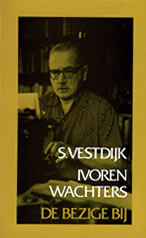 Simon Vestdijk Ivory Watchmen
Simon Vestdijk Ivory Watchmen
(Ivoren wachters, 1951)
In Ivory Watchmen Simon Vestdijk chronicles the downfall of a gifted secondary school student called Philip... -
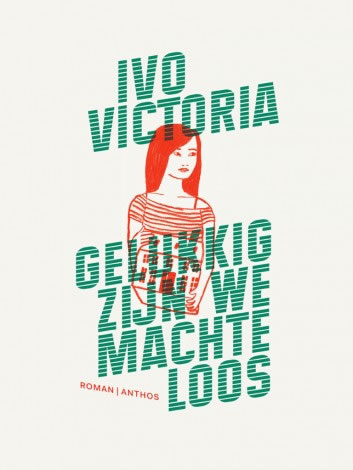 Ivo Victoria Fortunately We’re Powerless
Ivo Victoria Fortunately We’re Powerless
(Gelukkig zijn we machteloos, 2011)
Ivo Victoria’s second novel, *Gelukkig zijn we machteloos* (Fortunately We’re Powerless, 2011), is set during a family... -
 Arjan Visser The Last Days
Arjan Visser The Last Days
(De laatste dagen, 2003)
In November 1910, Professor P. Rijnierse was startled by a telegram from the public prosecutor of A. which contained... -
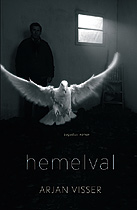 Arjan Visser Fall from Heaven
Arjan Visser Fall from Heaven
(Hemelval, 2006)
In his second novel, Hemelval (Fall from Heaven), Arjan Visser transports the reader to the world of the... -
 Erik Vlaminck Candy Floss
Erik Vlaminck Candy Floss
(Suikerspin, 2008)
In Suikerspin (Candy Floss), the impressive new novel by Erik Vlaminck, Jean-Baptist Van Hooylandt travels... -
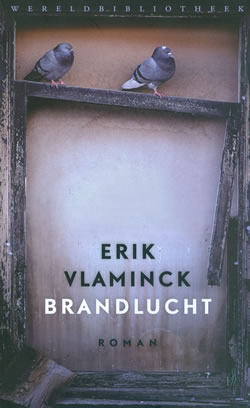 Erik Vlaminck Burning Smell
Erik Vlaminck Burning Smell
(Brandlucht, 2011)
In the little Canadian town of Saint Thomas there is a statue of the elephant Jumbo, star of a travelling circus, which... -
J.J. Voskuil The A.P. Beerta Institute
(Het A.P. Beerta Instituut, 1998)
Interest in the megalomaniac novel cycle Het Bureau, is starting to assume unprecedented proportions. The... -
J.J. Voskuil Requiem for a friend
(Requiem voor een vriend, 2002)
Only one thing counts for J.J. Voskuil: the truth. He does not venture into fantasy in his novels, but rather sketches... -
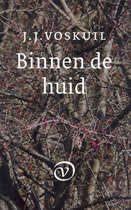 J.J. Voskuil Inside the Skin
J.J. Voskuil Inside the Skin
(Binnen de huid, 2009)
‘He was in a quandary right to the end,’ writes Lousje Voskuil-Haspers in the foreword to Inside the Skin,... -
J.J. Voskuil The Bureau
(Het bureau, 1996)
Never before has the dry humour and occasional tragedy of office life been described as thoroughly as in this cycle of... -
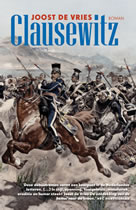 Joost de Vries Clausewitz
Joost de Vries Clausewitz
(Clausewitz, 2010)
While planning his thesis about Ferdynand LeFebvre, the famous author who disappeared without trace, young doctoral... -
Gerard Walschap Celibacy
(Celibaat, 1934)
Only two years ago the young Flemish writer Tom Lanoye (1958) had resounding success with Celibaat, a play... -
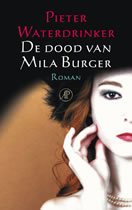 Pieter Waterdrinker The Death of Mila Burger
Pieter Waterdrinker The Death of Mila Burger
(De dood van Mila Burger, 2010)
Already in the Prologue to De dood van Mila Burger (The Death of Mila Burger), the author has told us that... -
Pieter Waterdrinker A Dutch Romance
(Een Hollandse romance, 2003)
A Dutch Romance takes place mainly in fashionable Moscow today, despite its title. Waterdrinker writes about... -
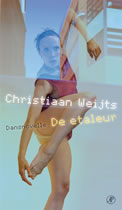 Christiaan Weijts The window dresser
Christiaan Weijts The window dresser
(De etaleur, 2009)
Having sought inspiration first in music (Article 285b) and then in the visual arts (Via Cappello... -
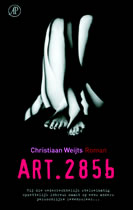 Christiaan Weijts Art. 285b
Christiaan Weijts Art. 285b
(Art. 285b, 2006)
In Christiaan Weijts’s debut novel, love evolves into an obsession. When his girlfriend Victoria Fabers terminates... -
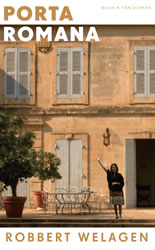 Robbert Welagen Porta Romana
Robbert Welagen Porta Romana
(Porta Romana, 2011)
Fifty-plus and single, Emilio Lastrucci wakes up in hospital with severe memory loss. What has happened? He has only... -
Rogi Wieg The Mother Lover
(De moederminnaar, 1992)
An approximately forty year old man who’s checked himself into a psychiatric clinic is discharged again after five... -
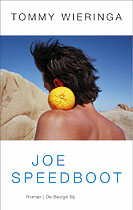 Tommy Wieringa Joe Speedboat
Tommy Wieringa Joe Speedboat
(Joe Speedboot, 2005)
With his wheelchair-bound spastic narrator, Fransje Hermans, who can only speak in unintelligible grunts, Tommy... -
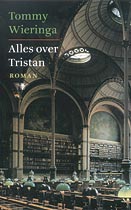 Tommy Wieringa All about Tristan
Tommy Wieringa All about Tristan
(Alles over Tristan, 2002)
Novels where the biographer plays the role of the hero could almost be said to be in a genre of their own. The reader... -
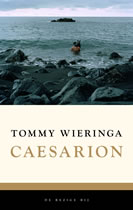 Tommy Wieringa Caesarion
Tommy Wieringa Caesarion
(Caesarion, 2009)
The seed of Tommy Wieringa’s new novel, the hefty Caesarion, was planted even before the resounding success of... -
 Leon de Winter The Hollywood Sky
Leon de Winter The Hollywood Sky
(De hemel van Hollywood, 1997)
De hemel van Hollywood is like a house of mirrors: from the opening lines to the last page mysterious tension... -
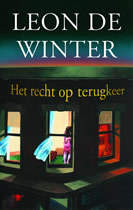 Leon de Winter The Right of Return
Leon de Winter The Right of Return
(Het recht op terugkeer, 2008)
In The Right of Return Leon de Winter has written an audacious book that demonstrates more powerfully than... -
Paul de Wispelaere Favourite Things
(En de liefste dingen nog verder, 1998)
On page one of En de liefste dingen nog verder, the book’s writer and main character who is approaching... -
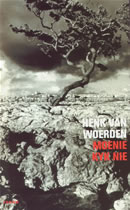 Henk van Woerden Moenie kyk nie
Henk van Woerden Moenie kyk nie
(Moenie kyk nie, 1993)
The title of the book Moenie kyk nie means ‘don’t look at me’ in South African Dutch. It refers to the novel’s... -
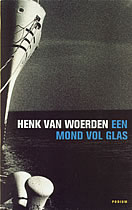 Henk van Woerden A Mouthful of Glass
Henk van Woerden A Mouthful of Glass
(Een mond vol glas, 1998)
After two novels set in South Africa – Moenie kyk nie and Tikoes – in A Mouth of Glass Henk... -
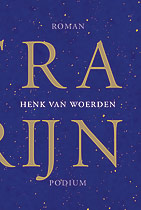 Henk van Woerden Ultramarine
Henk van Woerden Ultramarine
(Ultramarijn, 2005)
Entirely unexpectedly, Ultramarijn, the novel that seemed to indicate a new direction in Henk van Woerden’s... -
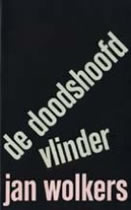 Jan Wolkers The Death’s Head Moth
Jan Wolkers The Death’s Head Moth
(De doodshoofdvlinder, 1979)
Paul’s father has died. We find out about him through Paul and from comments made by his widow and his other children.... -
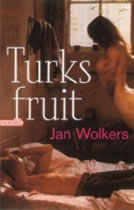 Jan Wolkers Turkish Delight
Jan Wolkers Turkish Delight
(Turks Fruit, 1969)
Turkish Delight (1969) opens in a sculptor’s squalid studio. The nameless artist has been distraught and angry... -
Jan Wolkers The Peach of Immortality
(De perzik van onsterfelijkheid, 1980)
Jan Wolkers wrote the way he painted, with visual punch. He displayed great nerve in the way he set up a story,... -
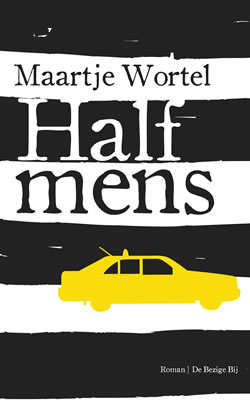 Maartje Wortel Half-Human
Maartje Wortel Half-Human
(Half mens, 2011)
In her earlier work Maartje Wortel proved herself a storyteller utterly unlike any other. Her first novel, *Half mens*... -
Joost Zwagerman Six Stars
(Zes sterren, 2002)
Joost Zwagerman’s reputation is based partly on the way he deals with moral dilemmas with which Dutch society is... -
Joost Zwagerman Chaos and Commotion
(Chaos en rumoer, 1997)
Writing about one’s inability to write is a favourite among writers suffering from writer’s block – a therapeutic...
